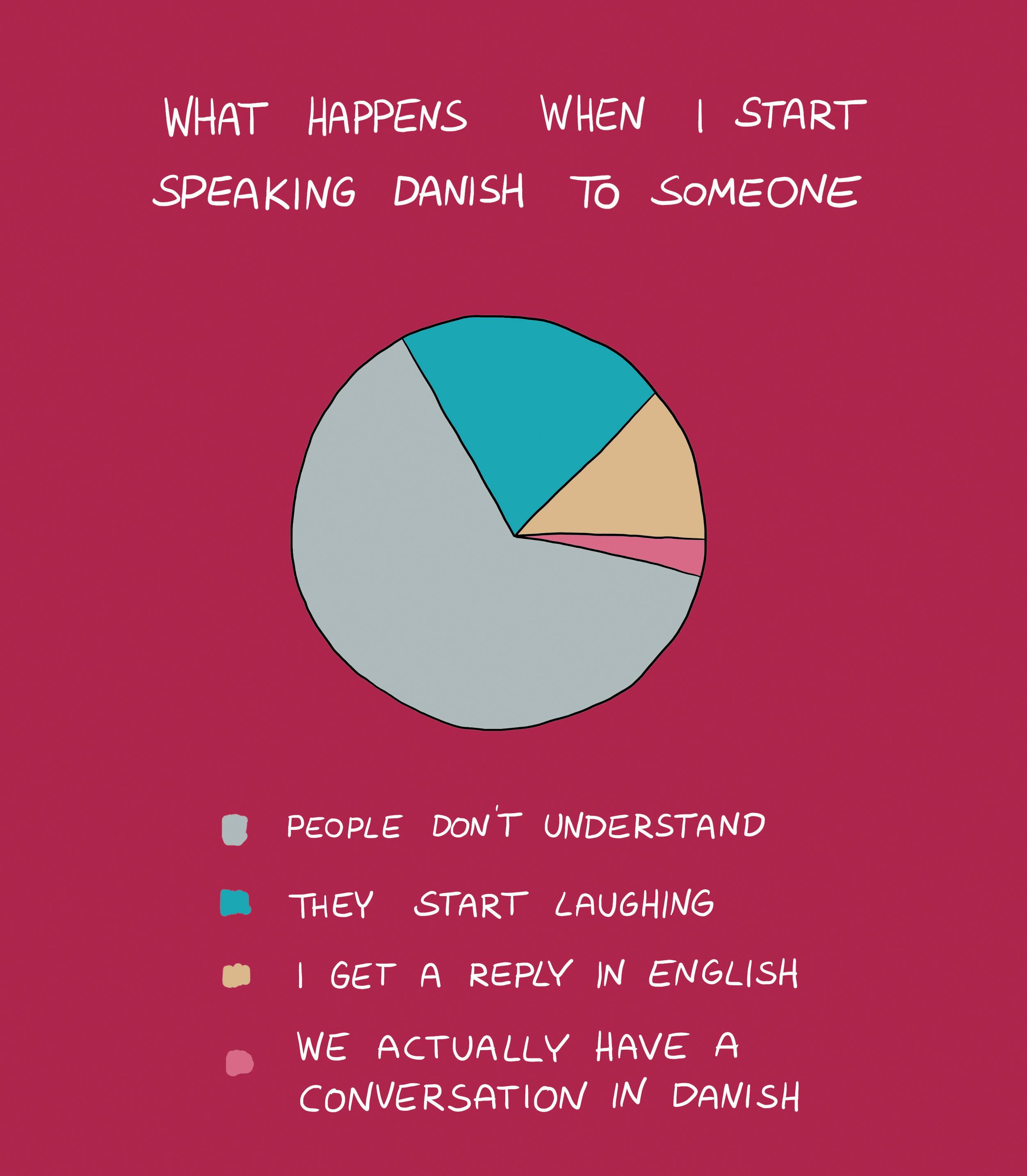LAST













FOR THREE weeks of campaigning, it is all about winning the public’s support. But come the evening of November 1, for the o cial candidates to become PM, it is no longer merely about how popular their parties are.
The current PM, Socialdemokratiet chair Mette Frederiksen, might lead the party with the largest share of the national vote, but come November 2 she will only be able to form a government should she be able to command a majority of the vote with the help of allies.
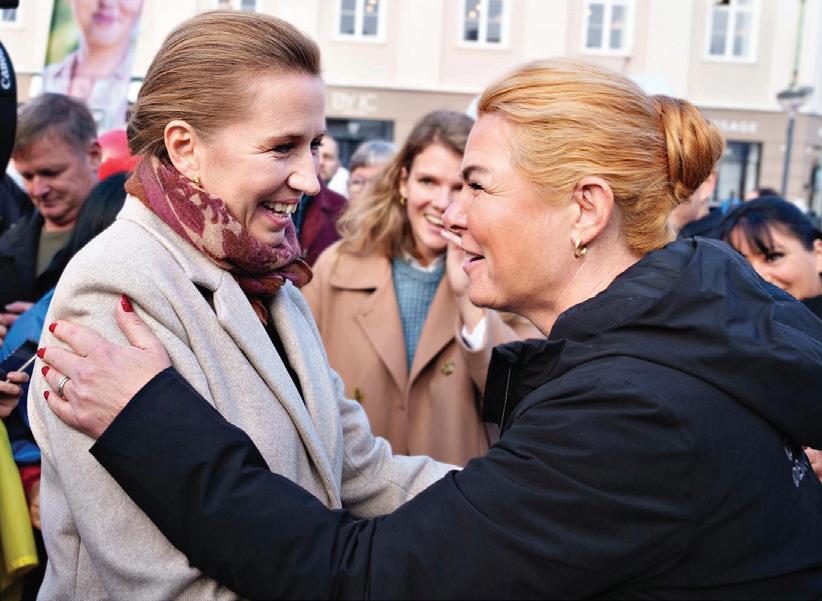
The traditional Red Bloc allies managed that on their own in 2019, but this year, in what is likely to be the closest election for a generation, Frederiksen will need extra help to get over the line.


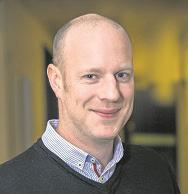
NOBODY knows for sure what Moderaternes leader Lars Løkke Ramussen Ramussen would say should PM Frederiksen come, cap in hand, to ask for his support in forming a government.
His centrist party could conceivably go either way, but given his long-time chairmanship of the right-wing party Venstre, he will be most inclined to aiding the Blue Bloc.
According to eight polls conducted so far in October, support for Moderaternes ranges between 2.2 and 6.5 percent.
IT’S HARD to imagine PM Frederiksen won’t need the support of Radikale, the party that gave her an ultimatum to call an election by October 4 or lose its support altogether.
Before the emergence of Dansk Folkeparti in the late 1990s, Radikale was the go-to kingmaker, as capable of siding with the right as the left. For example, it backed Konservative for the best part of the 1980s, and then Socialdemokratiet for the best part of the 1990s.
Support for the party is not exactly high, ranging from 3.8 to 6.8 of the vote – in truth, it took a beating as a result of its ultimatum – but it still might be enough to land a decisive blow.
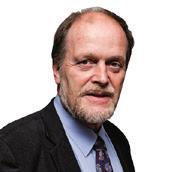
Steady Støjberg a player OF ALL the new parties, Inger Støjberg’s Danmarksdemokraterne is expected to do the best. Currently polling between 8.4 and 10.7 percent, she will o er invaluable support to the Blue Bloc’s hopes of forming a majority.
Pundits are con dent she will give her backing to the Blue Bloc prime minsterial candidate with the biggest share of the vote, even though she clearly has a better relationship with Konservative leader Søren Pape Poulsen than Venstre counterpart Jakob Ellemmann-Jensen.
After all, Venstre did little to protect its former deputy leader once the Supreme Court decided she should stand trial for breaking rules during her time as immigration and integration minister. A guilty verdict ended up in her serving a prison term – plenty of time to consider who her true friends are in Danish politics.
Tight race ahead NEVERTHELESS, after months of trailing Konservative (9.8-12.3), Venstre (11.914.6) are again the Blue Bloc party with the biggest clout, and the smart money is on Ellemmann-Jensen becoming PM should Frederiksen be unable to form a majority.
In August and September, the Blue Bloc led in 11 of the 16 polls conducted. But in October, it has failed to lead in any of the eight so far revealed.
The Red Bloc lead in those eight polls ranges from 1.3 to 4.4 percent. But then again, nobody knows who will back who, once the voting is over.
2030 plan unveiled
DANMARKS Statistik research con rms
that MPs with a long-term higher education are over-represented, and women are under-represented, accounting for 47 and 39 percent of the seats.
PM Frederiksen questioned the wisdom of such long university courses in her opening address at Parliament on October 4, and it is part of the government’s latest plan, ‘DK2030 - et grønnere, sikrere og stærkere Danmark 2030’, for which 48 billion kroner has been allocated.
The government wants to half the length of 35-50 percent of all master's programs from two years to one – primarily degrees in humanities and social sciences, which will see the number of hours of teaching and guidance increase to 15 per week.

THE OTHER big change in policy is a new e ort to cut red tape in the public sector – particularly in the area of welfare, which will receive 12.5 billion kroner – whilst promoting annual growth of the public sector of about 0.8 percent from 2024-2030.
Public o cials are encouraged to “spend less time in front of the computer and more in front of the citizen”. With 21.25 billion kroner in funding, the state wants to free up employees to retrain and work more with children and the elderly.

Meanwhile, 11.75 billion kroner will be earmarked to increase the defence budget to 2 percent of GDP by 2033, and 2.5 billion kroner has been set aside to provide leeway for green climate-related initiatives. (BH)
COPENHAGEN is the top city in Europe for bargain hunters, according to insurance comparison service Confused.com. The capital was lauded for its highly rated ea markets, street markets and antique stores. Riga, Amsterdam, Dublin and Budapest completed the top ve. Aarhus, meanwhile, was ranked 25th. Local gas prices soar
THE CAPITAL Region's utility provider, HOFOR, raised the price of biogas and natural gas in the capital on October 1, to the extent that the bill of the average customer has risen from 16,000 to 26,000 kroner a year. HOFOR provides gas to almost 300,000 people in Copenhagen.
THE NUMBER of zero-emission taxis servicing Copenhagen Airport has more than doubled: from less than 25 percent last summer, to 53 percent today. The vehicles are given priority queuing over diesel and petrol taxis.
WHILE Copenhagen is the 26th best city in Europe for singles, according to Big Seven Travel, ve of the top seven (Barcelona, London, Madrid, Paris and Manchester) are all notable for having huge football teams. Copenhagen was praised for being great for dating app downloads and women who are not shy about approaching men.
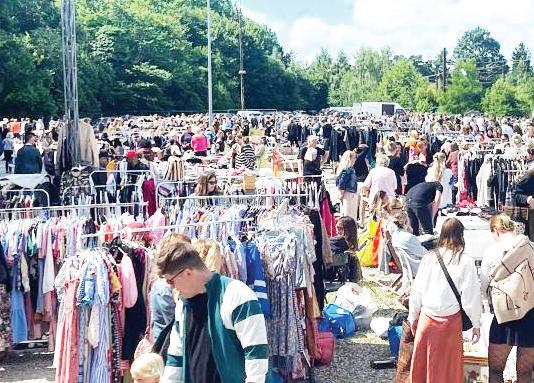
A 65 MILLION kroner package has been con rmed to restore the Amaliehaven city park to the same state as it opened in almost 40 years ago. Work, which commenced on October 1, will take until December 2023. In the meantime, the park will be closed to the public.
THE CONTROVERSIAL renovation of the Frederiksberg swimming pool, one of the oldest in the country, has resumed. Originally due to be completed in May 2021, work was delayed after the municipality sued the contractor over its failure to meet deadlines and quality requirements. The overall budget has risen from 70 to 100 million kroner.
ENHEDSLISTEN and SF want to prevent diesel cars with particulate lters from entering the capital. Additionally, they want to dismantle wood stoves – particularly given the possibility there will be a huge demand this winter due to the ongoing energy crisis.
NON-ESSENTIAL lighting on the Øresund Bridge will be switched o during the autumn and winter to save energy. Pylon lights, for example, will only be switched to mark the four Sundays of Advent, the Christmas holiday and o cial ag days.


























Denmark, the progressive beacon that left-wing Americans acclaim to prove socialism isn’t a bad word, is also a country with public policy explicitly based on the belief that an increase in ‘non-Western’ populations is a threat to the nation’s values. But is the parallel society policy in touch with reality?
JARED PAOLINOON SEPTEMBER 11, Denmark’s neighbours across the Øresund headed to the polls. A right-wing bloc has now emerged with a majority in the Swedish Parliament, stripping PM Magdalena Andersson and her social democrats of their position at the head of government.
However, it was the days and weeks prior to the election that revealed the full extent of Sweden’s shift to the right. During this time, Andersson and her party proved more willing than ever to adopt the type of anti-immigration measures that have made their oppo nents popular, including one distinctly Danish policy that has earned Denmark the ire of activists, NGOs and the UN: the ghetto plan.
The years-old ghetto plan, which was rebranded as Denmark’s “parallel society” policy in 2021, imposes special housing, education and policing meas ures in residential areas that the state has designated on the basis of not only their socioeconomic status but also on their racial and ethnic composition.
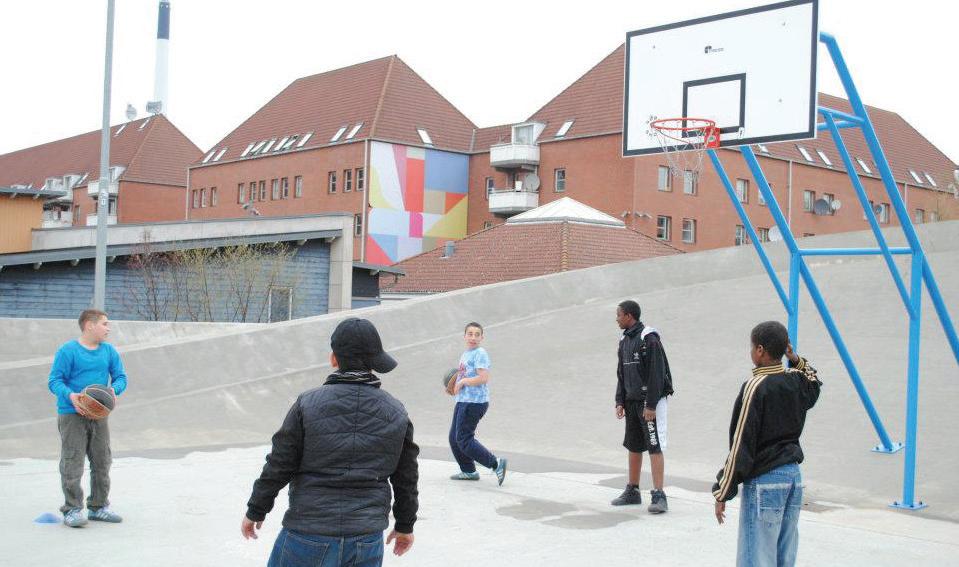
“Holes have been made in the map of Denmark,” contends the govern ment’s ‘One Denmark without Parallel Societies’ report. “Here, an excessive proportion of citizens do not take suffi cient responsibility. They do not actively participate in the Danish language, society and labour market. We have a group of citizens who do not embrace Danish norms and values.”
That irresponsible, values-lacking group of citizens, according to the plan, is Denmark’s immigrant population – particularly those of “non-Western origin”. Due largely to this distinction, Denmark’s ghetto plan has been subject to widespread international condemnation, with critics calling it racist and discriminatory. Never theless, Mette Frederiksen and her Socialdemokratiet party have contin ued to support the policy, which was first implemented and then overhauled during the non-consecutive terms of former PM Lars Løkke Rasmussen, the former leader of the right-wing Venstre party.
Socialdemokratiet’s Swedish coun terparts then duly followed suit with their pre-election campaign push, which included language and policy proposals eerily reminiscent of the Danish policy. The party’s election man ifesto, for example, outlined policies to prevent new arrivals from settling in areas where large concentrations of non-Swedish ethnicities already reside.
And in early August, the Swedish PM announced new punishments for gang-related offences, including
lengthier prison sentences, linking the problems explicitly to immigration.

“Too much migration and too little integration has led to parallel socie ties where criminal gangs could take root and grow,” explained the Swedish PM regarding the new punishments.
Finally, the Swedish integration and migration minister, Anders Ygeman, proposed a 50 percent limit on con centrations of people with “non-Nordic” backgrounds in “troubled areas”.
IT’S A TIRED tale. With an election approaching, politicians rush to rile voters to their side. Inevitably, it’s an other draw from the well that never seems to run dry: the threat of the other. Whether on the basis of some political calculus or deeply-held values, they bet on those voters who believe that immigrants and outsiders are to blame for their country’s woes.
In France’s last election, right-winger Marine Le Pen predictably drew deeply from that well, making immigration a centerpiece of her campaign. Despite gaining ground in her third attempt at the presidency, the approach failed to grant her victory over incumbent Em manuel Macron – the candidate of the long mythicised political centre whose campaign promises also included a tougher stance against immigration.
In the time since the last US election, Republicans have perpetually shone a light on the crisis at the border as evidence of President Joe Biden’s lack of leadership, hoping such sentiments will keep the political pendulum swing ing in states like Arizona, Georgia and Wisconsin when the Oval Office is up for grabs again in 2024.
The underlying fear that critics say is exploited by tough-on-immigration politicians – and that which makes it such a potent political talking point –
is at least in part exemplified by such baseless notions as the ‘Great Replace ment’, which has under the guise of an academic theory become a buzzword in both France and the US.
It is Denmark however – the pro gressive beacon that American leftists acclaim to prove socialism isn’t a bad word and French expats move to for better work-life balance – that has most explicitly put forward a policy aimed at preventing the outcome forewarned by conspiracy theories such as the Great Replacement: the rise of a majority-minority state and the subsequent collapse of national values. That explicit goal of the paral
lel society policy, according to a 2021 government statement, is to ensure that residents with non-Western back grounds amount to a maximum of 30 percent in all residential areas in Den mark by 2030.
Denmark’s ghettos ‘GHETTOLISTEN’, the government-cu rated list of Danish ‘ghettos’, has been published every year since 2010. In 2018, when the term parallel society replaced ghetto as the official desig nation for these areas, a majority non-Western population became the only mandatory criterium for inclu sion on the list, along with meeting
at least two of four thresholds in the categories of low income, high crime, high unemployment and low levels of education. As of 2021, there are three categories of residential areas in ad dition to parallel societies: ‘prevention areas’, ‘vulnerable housing areas’ and ‘transformation areas’.
Danmarks Statistik, an agency un der the auspices of the Ministry for Economic and Interior Affairs, defines non-Western as any country outside the EU, with the exceptions of Andorra, Australia, Canada, Iceland, Liechten stein, Monaco, New Zealand, Norway, San Marino, Switzerland, the UK, the USA, and the Vatican State.
According to critics, the e ect is that non-Western disproportionately means non-white. And because the non-Western de nition includes both recent immigrants and their rst and second-generation descendants, even a person born in Denmark and raised speaking Danish will be considered non-Western if they have recent ancestry in a country not included on the Danmarks Statistik list.
Garbi Schmidt, a migration researcher at Roskilde University, says that the notion of the ghetto has always been tied to race, at least conceptually. In Danish politics, however, Schmidt says that the word has, until recently, had more to do with socioeconomic factors.
“If you look through the 60s, 70s, 80s, and a good part of the 90s, when there's discussion of the ghettos, it relates to the question of social class,” contended Schmidt.
Since the early 2000s, however, when Denmark rst unveiled its national strategy against ghettoisation, this has changed. In its 2004 action plan, for example, the government detailed goals such as achieving a more balanced composition of residents and reducing the concentration of ethnic minorities, as well as immigrants and their descendants, in “ghetto areas” .

Today, furthered Schmidt: “It's quite obvious that what the plan sees as the problem is immigration and integration.”

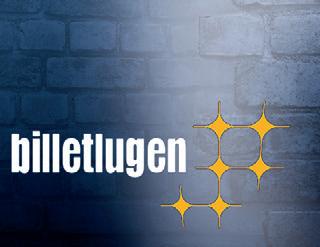
















UNLIKE Schmidt, Davide Secchi’s research at the University of Southern Denmark doesn’t typically focus on issues such as immigration and race, but rather organisational behaviour and decision-making. Secchi deals in numbers, computational models and, above all else, evidence. After reading about Denmark’s parallel society in policy in 2018, however, he couldn’t help but investigate.
“I was shocked by the claims that were being made, mostly without a shred of evidence,” said Secchi. “There’s nothing called parallel societies in the academic world. There’s no literature on it.”
Secchi asked simple a question about the parallel societies the government was telling him existed in
Denmark. Using an approach known as agent-based modeling, an advanced computational method for simulating the actions and interactions of autonomous agents in complex systems, he sought to assess the veracity of the theory of parallel societies. Was it likely, or even possible, for such a social structure to emerge?
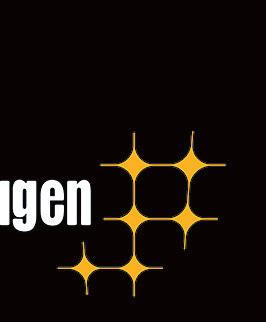
“The answer was no,” said Secchi. “You can't. It's very unlikely that a high number of people with a similar set of non-Western values would basically aggregate in a speci c area in a city.”


“There’s not a one-to-one type of correspondence that if you have a low income, and if you are an immigrant, then you also have values that are not compatible with Denmark. That's not holding up.”
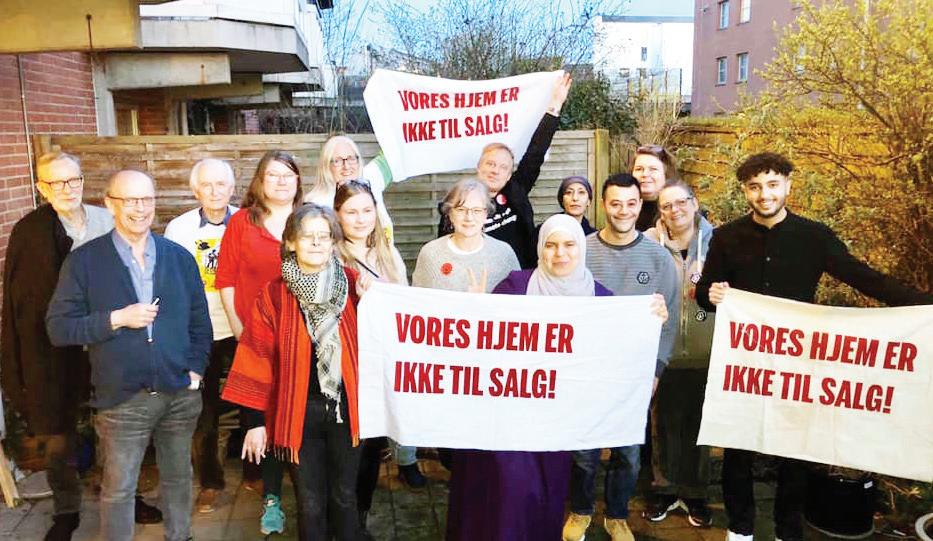
Secchi planned to continue his research on the matter, but after having two proposals rejected by the Danish Research Council, he lacked the funding and left the question behind.
“I hope that at some point it will be discussed again by politicians with greater orientation towards scienti c evidence or scienti c methodology,” said Secchi. “I'm not saying that they should be using
agent-based modeling, but it certainly deserves more serious interest.”







Speaking of the current policy, he concluded: “It's not based on evidence, and that's the most dangerous part.”
Being ‘non-Western’ AMANDEEP Midha has been living in Denmark for nearly a decade. He is, by the government’s de nition, non-Western. An accomplished engineer and industry standout, it is being ‘non-Western’ that to a great extent has shaped his experience in the country.
Last year, Midha scrapped plans to move from Copenhagen to Gladsaxe over concerns that his soon-to-be neighbourhood would end up on the government’s ghettolisten. According to the most recently published list, no community in that municipality has met the criteria, but two have met the requirements to be considered prevention areas – where immigrants and descendants of non-Western origin exceed 30 percent of the local population.
Prevention areas emerged as a result of 2021 legislation passed by a broad majority in Parliament. To keep prevention areas from becoming parallel

societies, the legislation introduced special rental rules in the areas and opened the door for “strategic demolition”.

Midha, by moving to one of these prevention areas, would have brought the percentage of non-Western residents ever so slightly closer to 50. And with the percentage already exceeding 30 – the maximum allowed by the 2030 target –he doubted he’d be able to stay for long.

So, Midha moved to nearby Rødovre – a neighborhood not on any of the government’s lists. Here, still, being ‘non-Western’ has brought its own challenges. He recalls a party held at his home in Rødovre shortly after moving in, when a Danish friend of a friend confronted him with a seemingly innocuous question: “How come you live here? Are you Danish?”
For Midha, the question underpinned the kind of sentiment that in some ways explains the existence of the parallel society policy.


“You are not white enough to come and mingle and live in this neighbourhood, and don't you dare go to another brown neighbourhood because you’ll be here to destroy our society,” he said.
“The entire understanding of im-





migrant is based on a stereotype of a Middle Eastern patriarchal, brutal, half-terrorist Arab.”



Midha, thankful for the opportunities he’s found in Denmark, was born in India, not the Middle East. Still, while unable to escape the stigma and stereotype of being non-Western in Denmark, he has expressed even greater hope for those who have been more directly a ected by the parallel society policy.
This may include those who have lived in one of Denmark’s longest standing ghettos, Mjølnerparken. The infamous housing estate in Copenhagen, of which around 80 percent of residents are classi ed as non-Western, has been subject to some of the most aggressive e orts by the government to eradicate so-called parallel societies from the country. Proposed measures have included the relocation of entire blocks of residents and the conversion of former public housing into private and co-operative housing.
“Imagine the plight of those people,” said Midha. “The next generation will grow up thinking they were kicked out of a neighbourhood because of their skin colour.”
Homeowners
THE RISING cost of electricity and gas brought on by the War in Ukraine has Denmark fearing the worst as winter approaches.
Worst hit remain homeowners powered by gas, and district heating suppliers dependent on gas are also preparing for high costs. In general, households outside densely-populated areas are the ones most likely to suffer.
But in the last month, the govern ment has brought some relief to the table with a new winter help package approved by Parliament.
PERHAPS the biggest measure is a 12-month freezing scheme for electricity, gas and district heating bills incurred by homes and businesses.
Should Q4 energy bills, as expected, exceed those handed out in the same pe riod in 2021, the difference will be frozen. The same will apply to district heating bills relating to the first quarter of next year.
The state will loan the energy com panies the amounts that customers ask to be frozen. Once a year has passed, customers will have four years to pay the frozen amount back to the energy companies, which in turn will pay back the state loan.
Harsh winter looking unlikely MEANWHILE, the Energistyrelsen energy agency has warned that national emer
gency plans might need to be enacted in the event of a harsh winter coupled with limited wind.
Nevertheless, Kristoffer Böttzauw, the head of Energistyrelsen, conceded to DR that the winter will most probably be a mild one.
Other experts concurred. Professor Brian Vad Mathiesen from Aalborg Uni versity believes power cuts this winter are very unlikely, while Kristian Ruby, the head of the European electricity industry organisation Eurelectric, contends it will be far worse in other European countries, such as Finland or France.
CONVERSELY, an EU proposal to cap the profits of energy companies, which have been thriving of late in Denmark, could lead to even higher prices, as many com panies use part of the profits to keep the prices down.
This cost will then be passed on to all district heating customers, regardless of how densely populated their area is.
“When we cannot use the money from the electricity business to reduce the heating price, the heating price will rise,” Kim Mortensen, the head of Dansk Fjernvarme, which looks after the inter ests of 370 district heating companies nationwide, warned TV2.

Lots to consider IN RELATED news, Statens Serum Institut has warned against taking showers and baths using colder water than usual due to the energy crisis, as it could cause a Legionnaires' outbreak.
And the government is temporarily postponing the closure of three Danish power plants to ensure electricity secu rity for the next two winters. The move will not impact Danish climate targets in 2025 and 2030.
THE READERSHIP of the top 10 most popular newspapers in creased from 2.55 to 2.60 million between the second half of 2021 and the first half of 2022, according to Kantar Gallup. However, 2019 numbers were higher at 2.84 mil lion readers. Only regional and local newspapers have seen a rise: up from 1.18 to 1.20 million.
DENMARK is on course to have its sunniest ever year. Should the final three months of the year be slightly sunnier than average, it will eclipse the 1,905 hours of sunshine set in 2018. Additionally, it is likely to be the fifth warmest year on record and a dryer year than normal.
ALMOST a half of all drivers com plain of tailgating – when the car behind is too close for comfort – according to a Rådet for Sikker Trafik survey. Tailgating carries a 2,500 kroner fine, a clip on the li cence, and the possibility of the driver being suspended.
IN JUST one year, food delivery company Just Eat Takeaway has had more than 145 expensive electric delivery bicycles stolen –worth a total of 4.8 million kroner. It appears that groups of youngsters aged 14-20 are behind the thefts.
The decision means that Nikolai, his brother Felix, and half-siblings Henrik and Athena will in the future be counts and countesses and addressed as 'your excellence' instead of 'your highness'.
WHEN PRINCE Nikolai, the eld est son of Prince Joachim, was born in August 1999, it was big news in Denmark. After all, he was third in line to the throne — in tennis terms, he was Andy Roddick.
Today the public struggle to remem ber his name. Federer, Nadal, Djokovic and Murray (Christian, Isabella, Josefine and Vincent) have relegated him to number six in the rankings.
And now his relegation is complete, as he and his three siblings have lost their HRH status and will no longer be princes and princesses.
The dreams of a grand slam are up in the smoke emanating from their prag matic grandmother’s 20 a day habit.
No longer count for much ROYAL experts contend that Queen Margrethe is seeking to consolidate the Royal Family ahead of public criticism of there being too many princes and princesses.
However, it is not a financial deci sion. The children of Joachim were never destined for the civil list — the select number of royals who receive 'apanage' from the public purse. Of the queen's eight grandchildren, only Prince Christian is on the list.
More like five days … THE CHILDREN’S father, Prince Joa chim, is shocked. He was informed in May that they would lose their titles at the age of 25. The new policy was only revealed to him five days before it became public knowledge.
Joachim was caught off-guard by a BT reporter in Paris and did not hold back in his criticism – particularly the royal house hold claim he had known since May.
Royal onlookers have also been sceptical about the royal household’s claim that other royal houses are set ting a precedent, pointing out that the case of Prince Harry's children not be ing HRHs in the UK is not comparable.

ROYAL expert Jakob Steen Olsen is surprised that Joachim and his first wife, Countess Alexandra, have been so vocal with their criticism.
"It is unusual," he told Berlingske.
"In royal circles, key decisions made by Queen Margrethe are not normally discussed."
Attempting to explain the cuts, he said: "It is the queen's attempt to trim the tree so that it continues to
TEACHERS have criticised the de cision to lower temperatures in schools to 19 degrees due to the energy crisis. A 2021 study of the indoor climate of public schools revealed that around 40 percent do not have a functional ventilation system. In the absence of rooms being aired regularly, CO2 levels rise to create an unhealthy envi ronment for children.
POSTNORD has been testing parcel deliveries using drones in Zealand. It recently flew a deliv ery, taking off from Køge, south of Copenhagen, to a private resi dence in Slagelse in west Zealand – a distance of 50 km. The drone has a speed of 150 km/h, but on this occasion did not exceed 100 due to certain weather and wind conditions. For now, it can only manage small packages.
Mink farming approved
DENMARK will again allow mink farming when its temporary ban expires next year. The govern ment, which banned the activity after culling 17 million mink in November 2020 to stop a corona mutation from spreading, is fol lowing the advice of the health authorities. The mink industry has been briefed on the return, but an exact date is not yet con firmed.
grow. You clean up a bit. You deal with future criticism ahead of time: for ex ample, if the Danes were to suddenly think there were far too many going around calling themselves princes and princesses."
No fingers pointed following gaspipe explosions, but Denmark unafraid to confront the truth once it’s confirmed
CHRISTIAN WENANDEINVESTIGATORS have not yet conclud ed who was responsible for the three large explosions that took place in the Baltic causing damage to the Nord Stream gas pipelines in late September.
The explosions, which took place just outside the Danish waters surrounding Bornholm, have not caused any supply consequences because they were not operational.
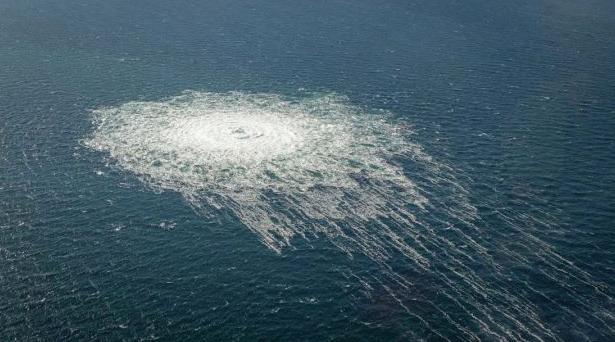
Still, as Lady Bracknell might have commented: “One is unfortunate, but three sounds like sabotage.”
ACCORDING to Greenpeace, the amount of leaked gas was the equiva lent of eight months of Denmark’s total CO2 emissions.
Ukraine has accused Russia of being behind the explosions, but Denmark and the EU have not made any accusations.
The defence minister, Morten Bødsk ov, is adamant that the explosions weren’t an accident, but were planned.
A COUPLE of days later, crew members on the Halfdan Bravo in the North Sea, which is 210 km west of Esbjerg, spot ted at least one drone near their drilling platform.
TotalEnergies, which operates the platform, said it had taken appropriate measures in relation to security around the platform – including reaching out to the authorities.
It is currently unknown who is behind the drone activity and to what end, but at least six observations of drones have been made near Norwegian platforms in recent weeks.
DENMARK marked the 50th anni versary of its vote to join the EU on October 2. Some 50 years earlier, 90.1 percent of Danes voted to join – the highest turnout for a referen dum in living history. The average for general elections is between 82.8 and 88.7 percent.
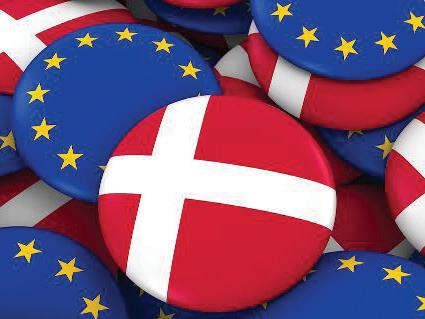
THREE men are on trial in Horsens accused of smuggling 1.2 tonnes of cannabis and 24 kilos of cocaine in furniture shipments to Norway. The ringleader has admitted to smug gling cannabis, but not cocaine. Verdicts are expected in January. Two other men, who worked as drivers, have already been given sentences of four and 10.5 years.
DENMARK and Belgium have entered a formal agreement to transport CO2 between the coun tries with the goal of permanent geological storage. This is the world’s first bilateral co-operation to capture, use and store CO2. The agreement seeks to support the EU's aim of climate-neutrality by 2050.
DENMARK and Greenland will carry out an impartial investigation of the ‘IUD case’: the forcing of Green landic women and girls, including those studying in Denmark, to use implanted contraception between 1960 and 1991. Investigators hope to better understand the histori cal context, the decision-making process and implementation of the initiative.
THE FOREIGN minister, Jeppe Kofod, has confirmed that a Dan ish-led project will investigate and document Russian war crimes in Ukraine. The Foreign Ministry is al locating 8 million kroner to Danish civil society organisation DIGNITY to lead the efforts. A major part of the effort will be educating Ukrain ians about the best way to collect and store evidence.
PM METTE Frederiksen, along with Jeppe Kodod, her foreign minister, are committed to new, more effec tive ways of applying sanctions to Russia in light of its actions over the past month: most notably the referendums in Ukrainian territory and Putin’s repeated threats to use nuclear weapons.
THE DEFENCE minister, Morten Bødskov, has promised "a lot of money" will be spent on defence equipment in the future, with the kingdom’s navy capabilities in northern waters at the front of the queue. Danish Defence wants to step up patrols of the Faroese and Greenlandic coastlines where foreign powers have illegally en tered waters nine times since 2015.

DENMARK has approved a 1.1 billion kroner donation package to ensure the delivery of essential equipment to Ukraine. Additionally, it has donated 285 million kroner, as part of a total of 685 million, to enable Slovakia to produce and donate artillery systems to the in vaded country.
Russia and China the biggest threats,
latest
ACCORDING to the new Zilmer Report, security threats against Denmark looking ahead to 2035 are escalating and serious.
Compiled by Michael Zilmer-Johns, Denmark’s ambassador to the UN, the 84-page report presents a gloomy ge
opolitical outlook for Denmark and the world in the coming years.
“Personally, I’m sad to have to bring forth such predictions. But the world will be a far more insecure place,” said Zilmer-Johns.
AMONG the global threats, the report highlighted climate change, the consol idation of Islamic State and Al-Qaeda,
cyber attacks, and pariah states such as North Korea and Iran.
But if there are two threats considered to be more serious than others right now, they are Russia and China.
A weakened Russia and stronger China have one thing in common, it concludes: greater unpredictability. With their respec tive nuclear arsenal and modern navy, they represent a large threat to global peace and prosperity. (CW)
FOLLOWING a series of major thefts carried out in Falster, South Zealand and Lolland-Falster Police requested and received a search warrant for an address in Serbia where they located 105 Leno vo computers stolen from three elementary schools in Næstved Municipality. Investigations are still ongoing into other thefts in Falster.
FOR THE first time since the aboli tion of the EU defence reservation, Denmark will contribute to an EU military operation. The deployment involves supplying one medical helicopter to Bosnia and Herzego vina as part of Operation Althea. It will last from mid-October to mid-December.
DENMARK is the world leader at of fering digital solutions to its citizens. It has topped the UN’s 2022 E-Govern ment Survey ahead of Finland, South Korea, New Zealand and Sweden. Meanwhile, Copenhagen ranked fourth behind Berlin, Madrid and Tallinn. It ranked first in three catego ries: Institutional Framework, Content Provision and Services Provision.
A PILOT involving four public schools using LEAPS principles (Learning and Engagement through Authentic Pro jects with a focus on Science) since 2018 has yielded strong results so far, according to Aalborg University. Six more schools joined the pilot in Au gust. LEAPS encourages project-based learning and problem-solving.
THE GOLDEN jackal – which closely resembles the wolf but is smaller – could arrive in Denmark again. It was last seen in 2017, when two dead ones showed up after sightings a year earlier in north ern Jutland. A number are now prowling northern Germany, re ports jv.dk, where a couple with three pups have been observed 133 km from the border.
FOR THE first time in 25 years, a Dane has been awarded a Nobel Prize.
On October 5, confirmation came through that Professor Morten Meldal, a 68-year-old academic with the University of Copenhagen, has been awarded the 2022 Nobel Prize in Chem istry for his work in click chemistry. He shared the prize with two others.
“THE NOBEL Prize in Chemistry 2022 was
awarded to Carolyn R Bertozzi, Morten Meldal and K Barry Sharpless ‘for the development of click chemistry and bioorthogonal chemistry’,” confirmed nobelprize.org.
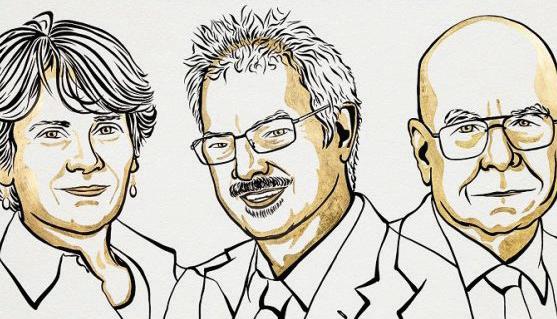
“Sharpless and Meldal have laid the foundation for a functional form of chemistry – click chemistry – in which molecular building blocks snap together quickly and efficiently. Bertozzi has taken click chemistry to a new dimension and started utilising it in living organisms.”
Among the elite
HE BECOMES only the 14th Dane to ever win the Nobel Prize, following in the footsteps of some of Denmark’s brightest minds, including Niels Bohr
and August Krogh.
Niels R Finsen was the first Dane to win it back in 1903, while the most recent winner before this week was Jens Christian Skou, who also won it in chemistry.
MELDAL said it was a great honour to win the prestigious award.
“When I found out that it was actually true, I got a shock. I got the call at 11 am, but I was also told that I couldn’t tell anyone before 12 noon. So I had an hour when I didn’t really know what to do with myself,” Morten Meldal told uniavisen.dk.
MOXIE, an oxygen producer on Mars, which University of Copen hagen researchers played a key role in creating, recently produced 50 grams on the planet – enough to keep an astronaut alive for 90 minutes. NASA, which wants to start populating Mars in the 2040s, hailed the test as “satisfactory”.
ACCORDING to Chef’s Pencil, Den mark is the world leader when it comes to cheese production per capita. Denmark produces 78 kg of cheese annually per capita, putting it ahead of New Zealand (76.1), Ire land (56.7), the Netherlands (54.2) and Cyprus (42). It exports cheese to 150 countries.
RESEARCH carried out by the University of Copenhagen reveals that many people who use apps do so uncomfortably. According to the article ‘Still Creepy After All These Years: The Normalisation of Affective Discomfort in App Use’, users feel stressed if they think the app is acquiring too much information. The initial study involved 751 participants.
SOME 45 percent of Danes do not know what biomass is, according to a University of Copenhagen study, despite it account ing for 48 percent of the country’s total renewable energy supply. Around 45 percent are undecided whether wood biomass should be used as an energy source. A further 78 percent said they were concerned about climate change. Light algorithm a godsend RESEARCHERS at SDU and Aarhus Uni versity are developing an algorithm that will help control the use of light for the horticulture industry. Their computer system helps predict the weather and energy prices, as well as how much light will be needed for plants. The algorithm could help horticulture businesses save at least 20 percent on energy consumption.
THE NOVO Nordisk Foundation will do nate 337 million kroner to three groups of researchers working to solve soci etal issues. Their three targets are: the prevention of inflammatory intestine diseases; finding substitutes for oil-based materials in construction; and devel oping softer materials and technology (‘Wearables’) for clothing.
THE NOVO Nordisk Foundation will do nate 123 million kroner over ten years to a specialised diabetes centre at the Faroe Islands’ national hospital in Torshavn. The Steno Diabetes Center will enable islanders to access the best possible research-based treatment and disease prevention. Around 5,000 of the 53,000 islanders are thought to suffer from diabetes.
DANISH homeowners can now apply to a 2.5 billion kroner state fund for help with rising energy prices, providing they satisfy certain criteria relating to income and assets. The funds will help make their homes more energy-efficient, such as by changing to heat pumps, improving the insulation and replacing windows.
THE UNIVERSITY of Copenhagen and the University of Southern Denmark are establishing a humanitarian research centre after receiving 60 million kroner from A P Møllerske Støttefond. Chiefly focused on societal problems, the Nordic Humanities Centre for Challenge-Based Inquiry will have enough funding to run for its first six years from 2023.
THE MINISTRY of Food, Agriculture and Fisheries is taking steps to ban the in troduction of new caged egg facilities, beginning in 2023. The seven existing producers will be phased out over the coming 12 years. There will be no com pensation scheme. In 2010, caged hens produced 60 percent of Denmark’s eggs. As of 2021, the share was 13 percent.
THE GOVERNMENT has set a 100 percent green fuel target of 2025 for the aviation industry in the hope the whole sector will be completely sustainable by 2030. It is set ting aside 1.8 billion kroner to support the process and considering a new 13 kroner passenger fee for those taking flights from Danish airports (excluding transit/transfer).
NYBORG Municipality on Funen is using goats to help get rid of inva sive plants. Six goats have been taken around the municipality and eaten plants deemed unwelcome in particu lar areas. The 150,000 kroner initiative has been nominated by Miljøstyrelsen for its 'Most Intelligent Project' award.
PHD STUDENTS at Aarhus University will research the potential of includ ing electric neurons in artificial skin and prosthetics in order to create a sense of touch and feel for patients. The neurons can help prosthetics, for instance, feel heat rays from the sun, sand between toes, and even pain.
DTU HAS developed tech that should enable Tanzanian health care to quickly identify illnesses in primitive circumstances. Investing in the systems used to research the spread and source of disease can be expensive, but DTU has devel oped a viable way for countries like Tanzania to access the tech.
DENMARK can consider itself European champions in cyber security. The cyber national team, led by Professor Jens Myrup Ped ersen from Aalborg University, grabbed gold at the European Cyber Security Championships in Vienna last month, seeing off 32 other countries over two days of competition.
KONRAD Basse Fisker, a 19-year-old gymnasium student at Roskilde Katedralskole, has won the gold award for young researchers hand ed out by the EU Contest for Young Scientists. His project looked into how the genetics of edible algae could be changed to enable peo ple to eat it on Mars. His genetic alterations protect the algae from the Red Planet’s harmful rays.
PLASMIDS are independent ge netic parasites found in bacteria and have been found to contain a defence mechanism against oth er bacteria known as CRISPR-Cas. University of Copenhagen re search detects that plasmids can lead to better protection against dangerous bacteria – primarily by functioning as a genetic GPS.
RESEARCHERS from the University of Southern Denmark and Odense University Hospital, with 40 million kroner in funding over four years, are working to create an artificial blood vessel that is susceptible to neither blockage nor inflamma tion. Artificial vessels are commonly used in dialysis or bypass surgery, but mostly unchanged since their advent over 50 years ago.
WHEN A child is diagnosed with ADHD, it’s more likely it’s an over lap with autism, whereas adult diagnoses tend to correlate more with depression, according to re search carried out at the national psychiatry project iPSYCH. Around 5 percent of children in Denmark have ADHD, or at least symptoms. Two-thirds will continue to be af flicted into adulthood.
Yes, Professor Meldal (centre) will get a medal!

THE GOOD news is that a new COV ID-19 booster vaccine is on the way as winter approaches.
The bad news is that the public will have to pay for it themselves, unless they are in the vulnerable risk groups, which include all over-50s.
“It’s not something that the health
authorities are actively recommending, but since we have enough vaccines, we think that the option should be available on a par with the influenza and travel vaccinations – which can also be pur chased,” said the health minister, Magnus Heunicke.
THE NEW booster will be updated to be able to tackle COVID-19 mutations that are prevalent in society today.
Those who will not need to pay for the booster vaccine include: all citizens over the age of 50; pregnant women; healthcare personnel who work with vulnerable individuals; staff working in certain social sectors; and next of kin over 12 years of age of individuals who are in the high risk zone
The booster vaccine offer, including where to get it, will be available to the public in early November.
COVID-19 cases are rising again, according to Statens Serum Institut.
Region Zealand had the highest frequency in Week 39 – 172 new cases per 100,000 people – while the Capital Region had the lowest with 119. The number of PCR tests increased by 17 percent, and the hospitalisation and death rates also rose. However, far fewer are ending up in intensive care.

SUNDHEDSSTYRELSEN has denied a DR report that claims the Pfiz er-BioNTech vaccine, which was administered to 3 million people, was underdosed by 10 percent. The health authority took measures to obtain seven doses from each vial, instead of the six recommended by the European Medicines Agency, but maintains it was “optimal uti lisation”.
STATENS Serum Institut has revealed that a Danish-produced vaccine will not be ready in 2022 like promised. MPs allocated 30 million kroner in 2020, but now it looks like human trials won’t take place until 2024. SSI, which claims the focus has widened to include other illnesses, previously had its own vaccine production arm, but sold it off to a Saudi company in 2017.
THE STATE spent 119.8 billion kro ner on the pandemic between the first quarter of 2020 and the corre sponding quarter of 2022, according to Danmarks Statistik. Compensation led the way with 81.5 billion kroner, followed by health sector expenses (33.7), testing (17.8), the vaccine pro gram (6.4), health sector protection gear (5.5) and patient treatment (1.7).

QUEEN Margrethe II, 82, has con tracted corona for a second time. She was diagnosed shortly after arriving back in Denmark after attending Elizabeth II's funeral where she sat just a few metres across from new king Charles III. She previously had COVID-19 in February this year.
Arsenal, Inter and Bayern Munich are among the giants that have Danish teens in their squads at the moment
CHRISTIAN WENANDEPREDICTING the success of young football players is very difficult – it’s far from being an exact science and there are many factors (injury, phys ical growth, mental strength etc) that have a huge impact on development.
Some are obvious talents and des tined for greatness, while others emerge from the shadows of the immense ma chine that is youth football.
No-one had heard of Christian Erik sen, for instance, when he was snapped up by Ajax Amsterdam before he had played a game for OB Odense.
Yeah, you’ve probably heard of Erik sen, but how about Jeppe Kjær?
Well, he was also bought by Ajax after becoming the youngest player to ever make his debut in the Danish Superliga on his 16th birthday. He was considered a big talent and was featured as one to watch by all the major news outlets.
But now 18, he has yet to make waves in Amsterdam and admitted earlier this year that he was struggling to break through at the Dutch giants. He’s still only 18, so there is time, but his 19-yearold compatriot Christian Rasmussen currently looks a better bet in regards to an Ajax breakthrough.
In other words, you can never tell.
NONETHELESS, every once in a while CPH POST gives its best guess in relation to the future stars of Denmark’s national team.
We did it ten years ago in 2012, listing six players aged 15-18 to watch out for, looking ahead.
Not to toot our own horn, but four out of six ended up playing for Denmark (Andreas Christensen, Victor Fischer, Christian Nørgaard and Pierre-Emile Højbjerg), so not a bad effort from us.
And with the World Cup around the corner (barring injury, Christensen, Højbjerg and Nørgaard are sure to go), we thought why not give it another go. This time, though, we tried with eleven talents aged 18 and under.
So without further ado, here are elev en potential stars for Denmark in 2026:
Zidan Sertdemir (17) –midfielder, Bayer Leverkusen
Despite his young age, he’s already played three games for Bayer Leverkusen and is a stalwart in the Danish under-19 squad.
The Ishøj kid with Turkish roots is rated among the biggest talents in Denmark at the moment and was on The Guardian’s Next Generation 2022 list, which high lights the 60 best talents in the world.
Jonathan Asp-Jensen (16) –midfielder, Bayern Munich
Another midfielder, Asp-Jensen, has made a strong start to his career at the German gi ants following his move from FC Midtjylland earlier this year. Two goals and four assists
in six games for the club’s under-17 team is a good reflection of that. Can he follow in Pierre-Emile Højbjerg’s footsteps at Bayern?
Silas Andersen (18) –midfielder, Inter Milan
After leaving FC Copenhagen for Inter Milan last year, Andersen has put in a good showing for the Italian club’s youth side, dishing out four assists in seven games from his defensive midfield position this season. But can he break through in a league notoriously difficult for youngsters to make the first team?
Chidozie (Chido) Obi (14) –forward, Arsenal
A bit of a gamble considering his age, but the lad with Nigerian roots looks to have a promising future at Arsenal and has already played a game for their un der-18s despite being only 14 years old. It’s early days for sure, but he could follow in Nicklas Bendtner’s footsteps (his early years, at least) and go all the way. Scored for the Denmark under-16s the other day.
Christian Østergaard (17) –defender, Wolfsburg
Another Bundesliga prospect, Øster gaard has played a number of games for Wolfsburg’s youth teams since moving to Germany from Randers last year. Despite being 17, he is already getting games for the club’s under-19s, for which he has picked up an assist. Also in Denmark’s under-18 squad.
Tobias Lund Jensen (16) –winger, Club Brugge Jensen only recently joined the Belgian outfit this summer from OB Odense, but he is already getting involved – getting a game in the UEFA Youth League for Club Brugge. He also has two goals in three games for Denmark’s under-17 side.
Oscar Fraulo (18) –midfielder, B Mönchengladbach
The midfielder with Italian roots al
ready has two goals in five games for Denmark’s under-19 side and se cured a move from FC Midtjylland to the Bundesliga this summer. So far he has played games for Borussia M’glad bach’s reserves, but he’s also been on the bench in the Bundesliga and Ger man Cup.
Patrick Dorgu (17) –left back, Lecce Since leaving FC Nordsjælland for Serie A outfit Lecce this summer, Dorgu has featured for the club’s youth team. And despite being only 17, he already has a goal and an assist in two games for Denmark’s under-19 side.
William Clem (18) –midfielder, FC Copenhagen FC Copenhagen recently extended Clem’s contract at the club until 2026 and you can understand why. A tena cious defensive midfielder, Clem won the Danish under-19 league with FCK last year and made his debut for the Danish under-19 team this month.
Oscar Schwartau (16) –forward, Brøndby Denmark could have a future number 9 in Schwartau, with the lad recently be coming the youngest player in Brøndby history at the age of 16 years and 61 days. He followed that up by becoming the youngest league goalscorer for the club. Sprinkle in four goals in nine youth games for Denmark so far.
Gustav Christensen (17) –left winger, FC Midtjylland Christensen looks set to be the next big talent out of Herning thanks to his pro lific goal-scoring ability as a winger. He already has eight goals in just six games for FCM’s under-19s and is banging them in for Denmark as well – nine goals in eleven games for the under-18s and under-19s. And he’s still only 17!
FC COPENHAGEN became the first team to hold Manchester City goalless this season thanks to a 0-0 Champions League draw in Copenhagen on October 11. The Premier League giants played an hour with ten men, VAR disallowed a City goal and FCK keeper Kamil Grabara saved a penalty to keep the Danes level. FCK is now on two points and face Sevilla on October 25 in what could be the deciding game for third place in the group.
New Ukrainian culture centre
THE CULTURE Ministry has con firmed funding of nearly 10 million kroner for a Ukrainian culture centre – enough to cover its costs until 2025. Ukraine House in Denmark, which will operate the centre at Gl Dok in Christianshavn, will now apply for additional support. The centre will host cultural activities such as concerts, art exhibitions and book clubs.
Danish Oscar hope
‘HOLY SPIDER’, the Persian-lan guage film by Iranian-Danish director Ali Abbasi, has been cho sen to represent Denmark in the Best International Film category at the Oscars on March 12. A 15film shortlist will be revealed on December 2, and a final five on January 24. ‘Holy Spider’ was re leased in Denmark on October 13.
CANADIAN big band singer Mi chael Bublé is playing concerts at the Royal Arena on March 14 and Jyske Bank Box in Herning on March 15. Tickets cost 645 kroner. Other re cently confirmed concerts include: Noel Miller (DR Koncerthuset; May 28; 270kr); Roger Waters (Royal Arena; April 17-18; 500kr); Alestorm (Falkoner Salen; Jan 22; 450kr).
THE DBU football body had already said it wouldn’t be arranging any fan zones, or other activities, in Qatar as part of its hosting of the 2022 World Cup, as it “doesn’t want to support the country”, and fans are showing a sim ilar zeal. As of late September, Danes had bought around 2,000 tickets for the country’s three group games. Up to 15,000 had been available.
HOLGER Rune again reached a career-high working ranking of 26 following his runner’s-up perfor mance at the Sofia Open on October 2, where he defeated top seed Jakob Sinner in the semis. Meanwhile, Den mark’s top female player, Clara Tauson, has slid from 33 to 94 in the rankings due to a lingering back injury,
DENMARK on Sunday drew a favourable Euro 2024 qualifying group, landing Finland, Slovenia, Kazakhstan, Northern Ireland and San Marino. “Overall, it’s a good draw,” concluded Denmark coach Kasper Hjulmand. Qualifying be gins on March 23.
DENMARK under-19 international Zidan Sertdemir was among The Guardian’s 2022 Next Generation list – which highlights the 60 best young talents in world football. Sertdemir plays in midfield for Bayer Leverkusen.

ONE OF Denmark’s top female boxers, Sarah Mahfoud, lost for the first time in her professional career in Manchester on September 24. The Faroese-born boxer lost her IBF title belt to Puerto Rican fighter Amanda Serrano, already a threebelt champ, on points.
Bears back among elite
DENMARK’S top basketball team, the Bakken Bears, once again qual ified for the Champions League following a tight overtime victory against Serbian side FMP Meridian on September 25. The Danes won 88-82 after the game finished 7474 in ordinary time. The last time the Bears were in the Champions League was in the 2020/21 season. World’s youngest line-up
WITH AN average age of 22.31 years, Superliga side FC Nordsjælland fields the youngest line-ups across 60 leagues monitored by the CIES Football Observatory. With 74 percent, It also allocates the highest share of playing time to under-21s. The Super liga team with the oldest average age was AGF Aarhus with 26.57.
MATTIAS Skjelmose, 21, earned a breakout win in mid-September when he triumphed in the Tour de Luxembourg. He took over the yel low jersey with victory in the fourth stage time trial and then held on to clinch the title on September 24.
AGED JUST 17, Julius Beck has become the youngest ever Dane to make his debut in the Serie A. The former SønderjyskE player was subbed on for Spezia against Lazio on October 2 with eight minutes to go.
FOLLOWING several instances of fan trouble, Brøndby has been fined 400,000 kroner and ordered to play its remaining away games in 2022 without any supporters in attendance.
Housing prices forecast to fall by over 5 percent next year
SEBASTIANACCORDING to a new forecast by Nykredit, house prices will plum met over the next two years.

The average nationwide price fall in 2023 will be 5.6 percent, while the value of condominiums will decrease by 5.1
percent.
By 2024, however, the annual fall in house prices is expected to slow to an average of 1.5 percent, while the price of condominiums will fall by another 5.7 percent.

FOR AREAS such as northern Jutland and Bornholm, the picture is slightly less dramatic. House prices will fall by 3.3
percent and 3.7 percent respectively in 2023.
Last week, Nationalbanken also predicted "significant price falls" in the Danish housing market with almost identical figures to Nykredit.
Handelsbanken also published a gloomy forecast last week that the coming years will contain a decline in both house prices and consumption and exports.
THE SUPERMARKET chain Fakta will close by the end of 2022. Launched in 1981, it was acquired by Coop in 1987, and less than a decade ago there were 450 stores, including three in Germany. In many cases, its stores are being taken over by Coop 365dis count, a more overt budget chain. In related news, Coop is merging its Kvickly and SuperBrugsen chains.

DANISH companies are no longer ca reering into China to outsource their production and invest heavily. Many are looking elsewhere after two and a half years of closed borders and frequent shutdowns. Additionally, the Taiwan sit uation and general tightening of China’s authoritarian grip on its business sector are persuading Danish companies to leave.
THE C25 index of the top Danish stocks sustained a loss of more than 14 percent of their value in September – the equivalent of around 370 billion kroner. It was the C25’s worst month for 11 years.
THE SALLING Group is launching a new supermarket chain that only sells staple, non-perishable items such as oatmeal, nappies, toilet paper and pasta during daylight hours. Basalt, which saves mon ey on electricity, is 15 percent cheaper than other chains. The first ten stores will primarily open in Jutland and Funen. Copenhagen shoppers will have to wait until December.
VOLVO has confirmed it will stop selling petrol and diesel cars in Denmark and focus exclusively on electric and plug-in hybrids. It recently did the same thing in Norway. The Swedish car giant wants to be all-electric by 2030.
THE AVERAGE number of bankruptcies over the first nine months of 2022 was the highest level since 2012, according to Danmarks Statistik. While the last four months have seen levels comparable to those in the aftermath of the finan cial crisis in 2009 and 2010. September saw 251 bankruptcies – a 7.6 percent increase on August that caused 1,242 lost jobs.
LEGO GAVE most of its production em ployees a 3.5 percent wage increase, as of 1 October, to enable them to cope with rising prices and inflation. Other compa nies, such as Linak in Als and Novo Nordisk, have also announced wage increases.
THE GOVERNMENT'S net financial wealth increased by 39.7 billion kroner in the second quarter of 2022. Its net worth stood at 404.6 billion kroner, mainly due to neg ative revaluations of outstanding government bonds amounting to 56.3 billion kroner. In addition, the government surplus of 11.4 billion kroner also contributed.
NETS WANTS to sell e-ID solution MitID as it no longer fits in with the focus of its parent company, Nexi Group, which favours payment solutions. NemID is also up for sale. Nets and Nexi Group are not prepared to make further invest ments to take the e-ID solutions to the next solution.
ACCORDING to a Greater Co penhagen analysis, Copenhagen Airport generates a total of 95.7 billion kroner and 23,000 jobs in the region. Broken down, the Capital Region benefits to the tune of 73.8 billion and 17,900 jobs, followed by Region Zealand (10.5 bn; 2,500), Region Scania (10.2 bn; 2,600), and Region Halland (1.3 bn; un specified).
ECCO HAS stepped up marketing in Russia, drawing criticism from politicians such as PM Mette Fred eriksen. Ecco, which has previously explained that it continues oper ating in Russia for the sake of the company's 1,800 employees and their families, recently distribut ed coupons in connection with a Moscow marathon, reported Berlingske.
AROUND 1,000 of the country’s biggest companies saw an increase in turnover of at least 30 percent over the course of the pandemic. Freight companies like Maersk have been performing the best, as well as energy companies.
Two enlightening days on the farm with Niels Dengsø Jensen underlined how important it is to be welcoming of innovation
PATRICK HALFORDMANAGEMENT thinkers often use the metaphor about ‘snow melting at the edges’ of an organisation to highlight the phenomena whereby the top man agement of large organisations don’t get to see threats or change happen ing fast enough.
Often, it is said that people working close to the customers in the field –such as the engineers, sales and project managers – can see change coming faster than top managers. This can be a big issue in getting the whole organ isation to shift its operations before they become disrupted.
But there are also great examples of leaders of global companies who are curious enough, out of passion and ne cessity, to be able to identify conditions for change on the horizon, and then mobilise resources and partnerships to be able to exploit them.
An offer we couldn’t refuse DEVELOPING and maintaining an organisational culture of sustaina ble resilience is a common practice amongst the farmers who feed us. So what happens when you have a farmer whose family’s agricultural her itage goes back over a hundred years, who is simultaneously leading one of Europe’s top industrial companies focused on agriculture, energy and housing?
Well, we wanted to learn more about this, so we went to ask Niels Dengsø Jensen, the chair of DLG Group and AP Pension, about how his grounding in farming helps his DLG business to expand its markets in a sustainable way.
Niels’ response was: “Well, come to my farm outside Viborg in Jylland, and I’ll show you round some of our robotic innovation activities, and we can have a discussion on my philosophies for partnering and innovation!”
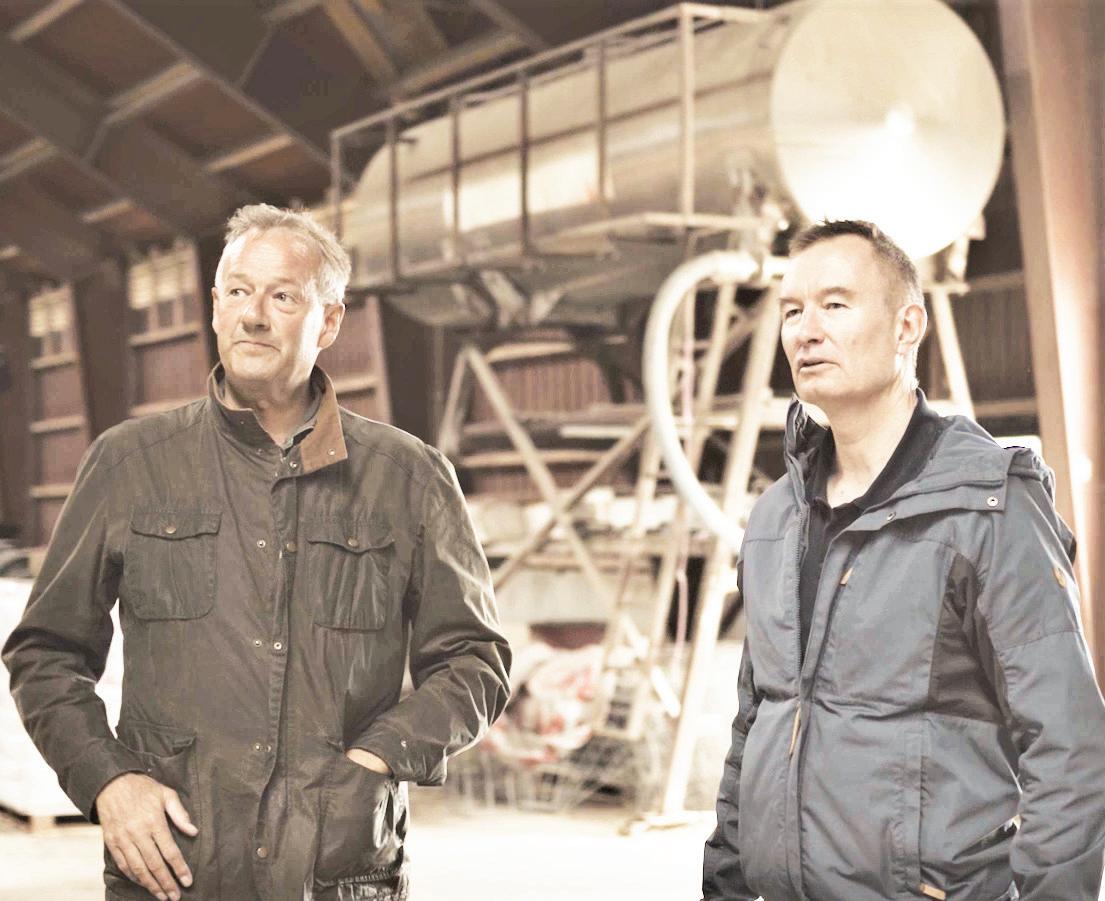
You don’t get offers like that very often from the chair of the board, so off we went with Tech Mahindra (part of the global Mahindra Group corpo ration) to spend two days with Niels.
I HAD MET Niels a couple of times before, so I knew what to expect. He is forthright with his practical opinions on leading his businesses, but also intensely curious about new techno logical and process innovations that are coming over the horizon. So with Niels you can expect a lot of questions and direct feedback about possibilities of applying new innovations in the real world.
The DLG Group is one of Europe’s
largest agribusiness companies, and it has employees and activities in 18 countries, with a 2021 turnover of 7.93 billion euros. Collectively owned by Danish farmers, this is a highly focused and practically managed business, with an acute sense of collaboration and technological innovation, along with a balanced approach to risk manage ment.
With that mix of characteristics comes the attitude of reaching out for expertise to help solve existing, and more importantly, future business op portunities. To demonstrate this, Niels took us on a tour of his farm to show us the various robotic machines he has in operation – each contributing to the core processes of the business. Some of these robots have been a feature of the business for many years, such as the milking machines and feeding robot in the cowshed. Others, such as AGROINTELLI’s Robotti, are being tested in the fields as we speak.
Artful balancing act OF COURSE, Niels does not just deploy robots on his farm out of a love of new technology. The farm is a complex operation requiring both long and short-term planning and decisions. It is also one of the first links in the food value chain and therefore critical to
so many other organisations whose processes kick in to feed societies. So, experimentation with new techno logical innovations needs to be run carefully and be cost-effective. You cannot jeopardise a season’s crop yield. Accordingly, innovation in the farm’s operations, as in the bigger agribusiness of DLG, is a balancing act of risk/reward.
And this brings us to the partner ships. One of the things that Denmark is known for globally are their robotic innovations on land, in the air (drones) and at sea. Many of these innovations continue to come out of research col laborations with Denmark’s leading universities and research institutions in Aarhus, Aalborg and Odense and of course DTU. What these institutions seek are industrial collaborations where they can test their new robotic and data analytics capabilities in the real world.
And with farmers (and chairs) such as Niels Dengsø Jensen, they have access to business leaders who are prepared to offer their operations to consortia of research teams and com panies to test their latest innovations.
AS WE WALKED the fields of Niels’ farm, we got to see these latest robotic
farmers in operation, as the AGROIN TELLI Robotti was following its carefully programmed journey across his fields, using its various sensors to navigate the optimum path. And, of course the drone can be the eye in the sky, keeping watch on the operations of the farm to speed up decision-making, and allow the farm workers to focus on higher value activities.
These robots also produce a lot of data that allows the farm’s team to monitor their activities in the crop production lifecycle, and it allows suppliers, such as AGROINTELLI, to gain valuable test data to improve their products. Naturally, all of this is monitored closely by Niels and his farm manager. While being open to new technologies, there can be no interruption to the critical timing of the harvesting of the crops.
All of the innovations we witnessed on Niels’ farm have a number of key components that have to balance investment decisions. One of those is that sustainable production must drive commercial growth. Indeed, it is the only way to go. And we see this also reflected in the DLG Group’s strategy.
Leaders who inspire OUR TOUR of Niels’ farm culminated
in a lengthy discussion (link in online version) on how his philosophies on partnering, innovation, sustainable resilience and leadership are based on practical approaches to running very complex businesses, using out side expertise to keep ahead of the competition.
One of the other learnings I came away with was how sometimes in this industry the competitors in one field, or country, can simultaneous ly be partners in another area. This requires astute judgement on part nering strategies.
Thriving in the agribusiness, with its complex demands of sustainable resilience and cost control, requires a flexible and practical mindset – one which knows how to harness new innovations and partnerships and is able to spot gaps or dangers in the weather on the horizon. Niels’ passion for both his DLG Group and farming business shines through, inspiring those who come into his orbit to of fer up new ideas.
Curious leaders are also approach able leaders. And leaders need their teams to come forward with new sus tainable ideas to help the business to thrive. This was very much in evidence after my two days on the farm with Niels Dengsø Jensen!
A Brit married to a Viking who landed on Danish shores 15 years ago, Leslea is the CEO of English Job Denmark. With over 20 years’ communications experience in both the business & not-for-pro t sectors, Leslea is passionate about coaching professionals & businesses in e ective communication.

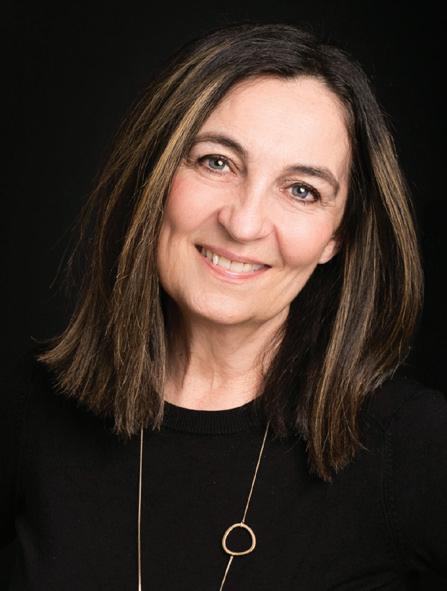
WITH WORKPLACES having to shut down temporarily during the pandemic, some workers have found working from home a delight. But for others, extroverts like myself, it’s been a miserable a air.
I love the buzz of an o ce and although I am still busy online (I have clients across Denmark and abroad), I crave face-to-face – most particularly our job seeker workshops, which tick all the boxes for me.
Being able to participate in something I enjoy meets my values of connection and encouragement, whilst building up my energy reserves.
Transitioning back to 9-5 SO HOW have the large companies managed to keep both types of sta happy?
Some have o ered their sta a choice of working from home or coming into the o ce, but an increasing majority has requested they are back in the o ce Monday-Friday.
So how does an organisation manage a smooth transition and ensure sta get reacquainted properly? They can’t rely on a good lunch or install a fancy co ee machine to boost morale – although good co ee is always a bonus. Team building has emerged as a winner.
IMMEDIATELY after lockdown, I was asked to come and facilitate team-building activities with some organisations in Copenhagen to help sta reconnect and build authentic relationships across remote o ces. With the team together in one location, in addition to the strategy meetings and workshops, I was able to bring some much-needed energy by adding some fun into the day.
It’s been incredible helping companies to gather and to help facilitate and give feedback so they can build a high-performance team and what roles are needed within.
The team leaders were given
an opportunity to show how much they valued their sta and their potential. Not only does team-building identify leaders, but it increases motivation and builds trust.
It’s good to laugh
THE BEST part was seeing the whole team come together, collaborate, tease each other and, most of all, laugh.
And what better way to nd
out more about your colleagues than create some competitive games and see the peacemaker, the natural leader or the comedian emerge from the pack!
Organisations that value their sta through team-building have a higher retention rate, more meaningful connections and improved productivity – in the o ce or working remotely, it’s a winner.
Thomas Kantsø is senior advisor and head of Climate and Sustainability at Djøf, the Danish Association for Social Science, Law and Economics. He is a blogger, moderator at Djøf’s events and advisor to Djøf’s members. In this column he writes about trends and tendencies in the labour market.







DID YOU know you can use your academic skills within social science to make the world a more sustainable place AND build yourself a career with purpose at the same time?
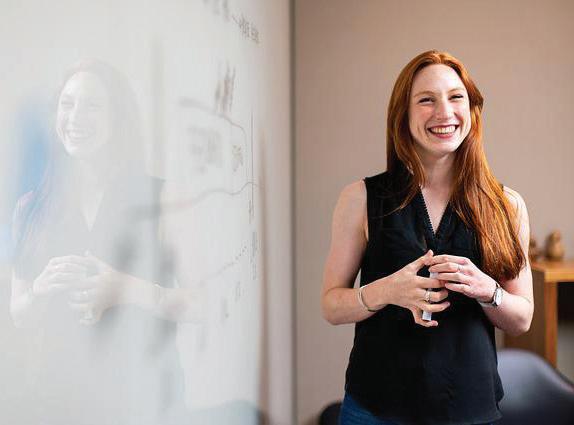
THE DANISH labour market is booming these days with jobs with a green focus. In this article I will describe very speci cally within which areas you can work according to your background.
But please remember: the green transition needs a lot of diverse pro les, commitment and all sorts of skills.
SO, IF YOU are dreaming about a green career, don’t hesitate to send an unsolicited application to a company you dream to work for.
In my job, I am trying to bridge the green market and the skill set our members represent.
If you have the passion, the ability to understand complex data, great
communication skills, project management skills and a lot of patience – the career opportunities are there.


Pro le with a law degree –knowing how to translate EU taxation and law into a Danish context. If you hold a law degree, your toolbox is quite solid, and you can get something tangible out of a lot of information.


Project management – the project leaders are enabling people across borders and expertise to work closely and professionally together. One of my favorite SDG’s is number 17: ‘Partnerships for the Goals’. We need each other in the green transition. We need to team up, be creative, and be innovative together to provide sustainable solutions.
Marketing and communication –the marketing and communication pro les are setting the green agenda at many companies. There is an increase in demand for people who can communicate a green strategy
to clients and stakeholders, as well as in public a airs. One of the worst things that can happen to a company in this day and age is being accused of greenwashing. You can make sure that doesn’t happen.
Procurement – to avoid greenwashing, all companies need to know every step of their value chain to make sure we buy sustainable solutions that are reusable for future generations. Negotiation and
contract management knowledge are required skills.
Finance and economy – proles with skills and experience in nance and economy are also contributing to the green agenda. An understanding of the circular economy, investment opportunities and how green projects are funded is the backbone of many jobs currently open for you as the next green candidates.
THE PM DID as expected by con rming a general election for November 1, and now the bandwagons are out all over the country, even though she got a headstart weeks ago on a red bus loaded with roses to be distributed to reluctant voters.
Radikale demanded a general election to prevent an asylum centre being set up in Africa, but the general election would have come in six months’ time anyway.
This time around, the di erence between the red and blue parties is not particularly big.
THE ECONOMY is generally ne, unemployment is low, the pandemic is under control, and the minks are dead. ‘Crises’ is nevertheless the buzz word. Since Putin climbed into the shoes of Peter the Great in February and invaded Ukraine, a lot of disturbance has hit the western world – Denmark included.
In ation is no longer a word from the past – it is here. And energy especially has become an issue. The public must cope with a temperature drop from 21 to 19 degree Celsius in o ces and schools, petrol prices are up 10-15 percent, but worst hit is natural gas and electricity.
We have seen gas prices more than quadruple to the extent that homeowners live in fear of foreclosure because they are unable to meet their living expenses.

THAT THREAT will be the election’s main issue. Politicians from left to right are digging into the state till to produce solutions to soften the pain, but nobody knows what it will take.
Everything carries an uncertainty right now. The War in Ukraine seems endless and we can only expect the unexpected – the mysterious way the pipelines in the Baltic Sea were blown up being a case in
point, as has been the recent fall in house prices – up to 5 to 10 percent.
All this means is that longterm climate consideration is somewhat suspended, and green becomes greenish as we wait for a winter that might be bitterly cold in spite of global warming.
SO WHILE the focus of the media should have been on the forthcoming COP27 in Egypt (November 6-18), we will have to make do with the Three Stooges on tour.
Expect a lot of sweet talk as the three PM candidates share a lot of common ground: a tough immigration policy, a tough remedy to repair healthcare after the pandemic, a commitment to defence spending to improve security – and they all hate Mr Putin.
Whoever wins won’t su er economically, as crises or no crises, the taxes have been pouring in and the state can easily pay for all the mink that might not have been killed in the rst place.
If there is a potential punchline, though, it could be the case of FE chief Lars Kjeldsen, which is still very much hushedup and need-to-know. That is the Danish way of ignoring real problems.
SWITCH o the lights when not in
use. Keep your shower short. Don’t turn the heating on too early this autumn. Suddenly, the energy companies want to conserve energy!
“It’s all about the pennies, and not the climate”, complains Charlotte, a 26-yearold newly-graduated engineer. Obsessed with plastic pollution, it took her many months to overcome her guilt to buy a plastic bottle. Like many of her generation about to enter the labour market, she de nes herself ‘Eco-anxious’.
Coined by the philosopher Glenn Albrecht in 2005, the term Eco-anxiety “refers to the existential pain experienced when the place where one resides is subject to environmental degradation”.
According to a global survey assessing climate anxiety among young people published by The Lancet in December 2021, 59 percent of young people (ages 16-25) are very or extremely worried and 84 percent are at least moderately worried.

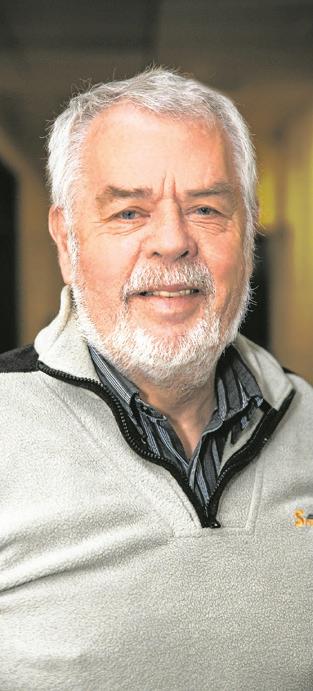
“LET’S DESERT before we’re stuck with nancial obligations,” a group of eight graduates from AgroParisTech – a French higher education institute that specialises in sciences, life sciences and engineering – famously said on their graduation day
in April 2022 to denounce the “destructive jobs” they had been training for ve years to merit.
By expressing their disbelief in sustainable development, green growth and ecological transition, they generated a buzz and opened up a debate.
“Tamper with plants in laboratories for multinationals, design prepared meals and chemotherapy to treat those who fall ill as a result, invent ‘good conscience’ labels, develop so-called ‘green’ energies,” are just four of the careers they believed awaited them in the labour market.

They refused to serve what they regard as an “ecocidal” economic model. Instead, they branched o , calling themselves deserters. Two will retrain (one as a sherman, another as a farmer-baker), while two others intend to farm (bees; sheep).
SINCE 2018, 32,000 students have signed the ‘Wake up Call on the Environment: a Student Manifesto’ to pressure employers into becoming climate-friendly if they desire to attract young talents.
It started in France and is now spreading in Sweden, Italy, Spain and Germany, as well as selected universities throughout Europe.
“Sending an email with an attachment
is as energy-intensive as a light bulb being on for 24 hours, and the equivalent in terms of CO2 emissions as a bulb lit for one hour,” they argue. “In 2020, the digital sector emitted as much greenhouse gas as aviation.”
This fresh outlook harbours strong ideas: it is not only about developing new energies but also, and above all, questioning our quest for in nite growth.
“WE CANNOT accept that the biodiversity of a project remains con ned to the number of beehives in a nice CSR report,” another student claims.
So yes, Charlotte was right, it’s all about the pennies, despite scientists warning us for decades about climate change and the disasters that would ensue.
With rising in ation and the worsening energy crisis, some parents have even encouraged their teenagers to shower at the local sports club in a wealthy suburb of Copenhagen to save some of their pennies.
However, history has often proven that dramatic change is driven by our pennies. In the context of the pandemic, rearmament, mega res, ooding and shortages, humankind will have to be resilient and adapt faster.
Sibylle is a French journalist, columnist and author who writes for a variety of French, English and Italian language-publications, specialising on the green transition. Having lived and worked in San Francisco, Milan, Berlin, Rome, Calgary and Paris, she speaks ve languages. Follow her on Instagram at sibdevalenceSIBYLLE
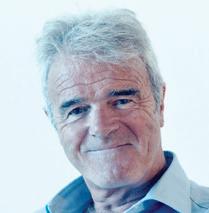
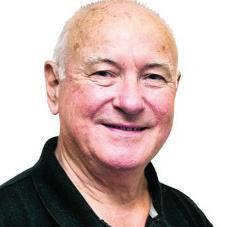
Conrad is a 30+ stand-up comedian and father of two. He has had two one-man-shows that have toured around Denmark, ‘Danglish’ and ‘Danglish 2’, which are both streaming on TV2 Play or his website. His new 2022 show ‘Hyggelicious’ is coming in September. His comedy is aimed at anyone seeking comfort, support or relief in this strange land.



IN DENMARK
we have all but forgotten the pandemic. Like a DSB skraldepose, we’ve left it behind with an amnesia about the last two years. The only lasting memories are the relics: the objects surviving from that ancient time.
Recently I saw a faded ‘Hold Afstand’ sticker on the oor at my supermarket, which today is a bit like nding an old VHS tape or a twenty- ve øre coin.

Here are some of my favourites from that ancient time which still cling on:


Empty hand sanitiser – no building entrance is complete without an obligatory empty bottle of hand sanitiser standing in a dusty case, often bolted to the wall. Sometimes, randomly and feeling nostalgic, we decide we should try it. Of course, nothing comes out because it hasn’t been lled up since January 2022.
Brug albuen stickers – the average DSB door button probably has more bacteria on it than a Heidi's Bier Bar pissoir. The solution: little stickers telling us to use our elbows. And we did for a while. Like some sort of twisted crab we buckled to push tiny buttons this way. Now we’re back to poking them and licking our ngers.

Plastic screens – although mostly removed, a few shops still have these and when you see one, it is nostalgic. Big swinging sheets of clear plastic that made it borderline impossible to talk to the sta . The best solution was crouching to get your face below the screen, the shop owner doing the same, just to be able to understand each other, and of course bringing your faces closer than ever. Who knows how many members of sta spread the virus by removing their face mask and getting their head into a position so they would breathe directly into a customer’s open mouth?
Mundbind – the symbol of the pandemic. For so long they were mandatory virtually everywhere, and now seeing someone wearing one sparks the same feeling a birdwatcher must have when they see a rare breed in the wild. We would walk around, ears pulled forward, looking like depressed surgeons. It felt like it would be forever.
Mundbind etiquette 1 – how can we forget this in a hurry? My favourite was probably the sneeze. Were we still supposed to lift our hands? I watched a man sneeze explosively into his facemask, with-








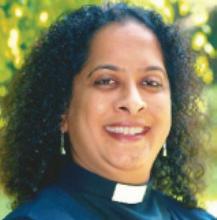
out moving his arms, and just continue to stand as though nothing had happened.
Mundbind etiquette 2 – or was it the cough? Too many times I saw people pull down their facemask to cough into their st, as though it made any sense. Once in a supermarket a woman pulled down her mask, coughed violently into her hand and then used that hand to nd out which pears were the softest.
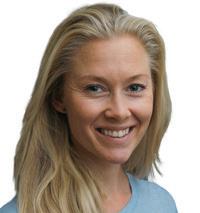
Mundbind etiquette 3 – of course, we needed signs to remind us how to wear the mundbind. Many thought their nose could happily stick out over the top, or that it could just hang from one ear alone. The very best were those who wore it around the wrist, apparently believing that as long as the mundbind could see their mund then it was working e ectively.
THESE items will continue to oat around in our post-pandemic world, raising a small smile of recognition from those who still spot them. Finding a shabby facemask at the bottom of a drawer does make me feel like some kind of archaeologist, and the smell of hand sanitiser will always take me back to 2020.
INTERNATIONAL or Danish?" "Public or pri vate?" "All the primary seats are full?" "We're only staying two years!" “We plan on planting roots here!" "My older child was in a Cambridge school previously" "My teenager is starting sec ondary … Cambridge or IB?"
These are just some of the issues that parents agonise over when choosing a school before relocating to Denmark.
FIRSTLY, start by educating yourself on Danish education (eng.uvm.dk). The public school sys tem is one option. Your child will be immersed in the Danish language and culture, and the option is good for families who plan on staying in Denmark indefinitely or permanently. The public school system is free and, depending on the district, can vary in quality. And there are also a few publicly-funded international, bilingual and multilingual schools.
Most other options are not free. Contrary to their name, friskoler tend to be small establish ments set up by groups of parents, which like private schools (including international and bilingual schools) charge fees, but are heavi ly subsidised by the state. All of these options usually offer smaller class sizes and a higher ac ademic standard, but usually do not have the same resources for children with special needs.
The lilleskole is a type of friskole that has a more holistic approach, focusing on pedagogy, and is very student-centred – hippy-dippy, as they say.
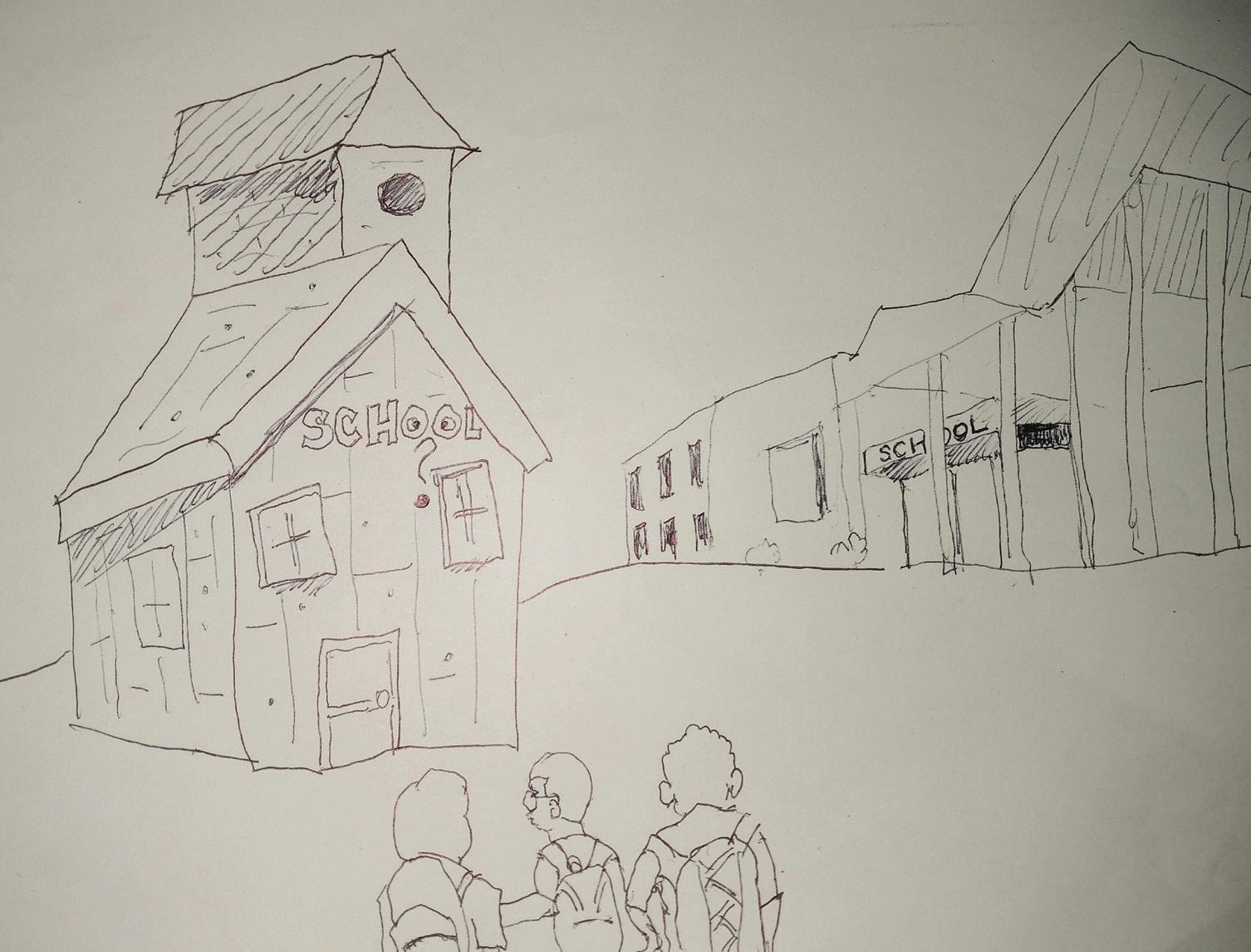
And don’t forget the efterskoler – the boarding schools for 9-10th grade and, in some cases, 8th grade. They can be costly, but they usually focus on specific subjects or interests like languages, sport, art, theatre, music etc.
SHOULD you opt for an international or bilingual
Jennifer and Jonathan Bauer are both teachers. Jennifer is from Chicago, and Jonathan is from New York. Jennifer has been teaching for 14 years and Jonathan for 11. They are parents and amateur Epicureans. Jennifer currently teaches privately. For more information, go to jennibauer.com.

school, you must consider the curriculum they teach. While many are International Baccalaureate schools, there are still some Cambridge Schools that culmi nate in IGCSE (International General Certificate of Secondary Education) exams in Year 11 (Danish 9th grade). The curriculum has roots in the UK.
The IB with its primary years program (PYP) and middle years program (MYP) is a broad international, student-centered system that
encourages social awareness, responsibility, and critical thinking, among other aspects, to encourage lifelong learning.
The Cambridge Program is traditionally a highly academic one that is meant to prepare students for academic promotion. This system may also prepare students for the IB Diploma program, which is a big academic leap from the more holistic PYP and MYP. The Cambridge curriculums now offer ‘Global Perspectives’, which strives to achieve a more interdisciplinary, holistic approach to learning by tying subjects together and encouraging more social awareness and critical thinking.
If you want to enroll your child in one of the international schools, unfortunately there are waiting lists for the early and primary years pro grams at many of these schools – especially in Copenhagen. Some families start their children at public school while they wait. This can only ensure a stronger foundation in Danish.
Substance vs appearance
NOW THAT you've zeroed in on the type of edu cation you would like your child to receive, it's time to research. While looking at websites and doing a
Google search for reviews can be helpful, it can also be misleading. Anyone can write a negative review. People also tend to express their dissatisfaction pub licly more than offering their praise online. The best you can do is to arrange one or more visits to schools.
Read the room. Look at the students and teachers. Are they happy? Stressed? Is there chaos, mayhem or is the order too rigid? State-of-theart, fancy facilities are not always an indication of an excellent school. If it's a bilingual school, is there interdepartmental communication? Do the students mingle? You can ask these questions. Look at class sizes. You should also get an idea of the level of organisation. Visit during break times just before a lesson. Are there teachers on duty? Are they attentive? Are students supervised?
While no school is perfect, your children deserve to be happy, and they deserve to be in a safe learning environment. Best of luck on your search!
It has been a pleasure writing this column, and we'd like to thank the Copenhagen Post for the wonderful opportunity, but this will be our last piece for now. Thank you for reading.
All the best, Jennifer and Jonathan


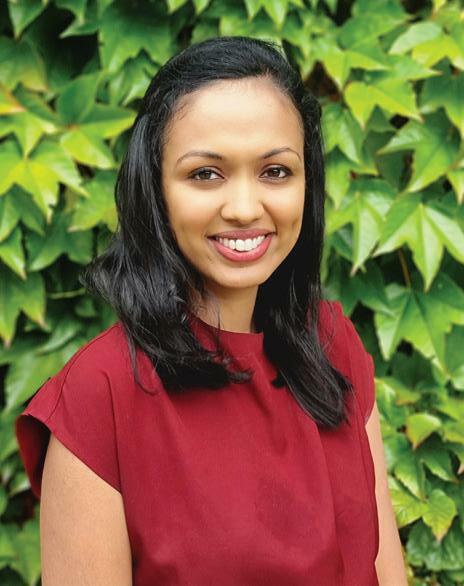
Sruthi, from India, moved to Denmark in 2014 to pursue a career within green energy technologies (biofuels, waste treatment, o shore wind). Through her passion project greenbyhabit.com, she supports others keen to embrace greener habits. Follow her on the Instagram handle @greenbyhabit, where she shares her sustainability journey and breaks down these topics in a more fun and simpli ed format

IN MY PREVIOUS columns, I have been looking at simple frameworks to make small but impactful sustainable changes in our daily lives. The goal was to be more mindful of our consumption habits and create less waste.
In this column, I wanted to zoom in on another aspect – something that happens while we are using certain daily items. This is a phenomenon we can’t see with our eyes as it happens at a micro level. But this has a huge impact on the environment and our health. It is the release of microplastics from our daily use items.
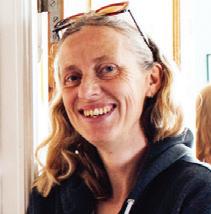
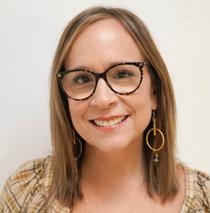
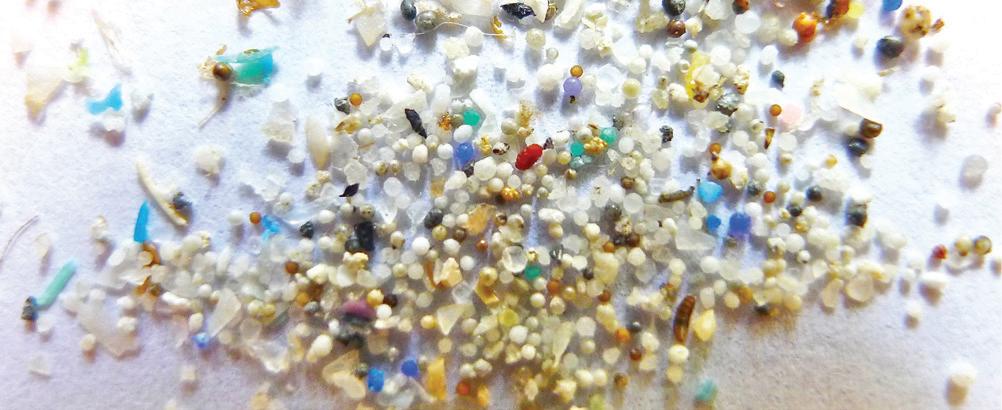
MICROPLASTICS are small fragments of plastics (< 5 mm). Microplastics enter air and waterways, posing threat to ocean life and end up in food chains (especially seafood). Recently they have been reported even in human placenta and bloodstreams.
But where do they come from? The root cause of microplastics is that plastics don't decompose like organic matter, but only degrade into smaller pieces, eventually becoming microplastics.
There are many products we use in our daily life that release microplastics because that is what they are designed to do!

YOU'RE best advised to check the ingredients before you buy any product, even though manufacturers routinely drum up ways to mislead consumers about what they're actually buying.
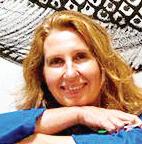
To make it easier for you, here's a quick overview of a few of the biggest culprits.
Dishwashing sponges – we’ve probably all at some point, with good intentions, invested in a bumper pack of colourful synthetic dishwashing sponges. Every time we wash dishes with these sponges, tiny bres are released. Some end up getting ltered at wastewater facilities, but an awful lot end up in rivers and oceans. A good alternative is to choose sponges made of natural bres like coconut husk, wood bre etc. They are available in most supermarkets and web shops in Denmark
Microbeads in household goods – you know those shiny sparkling beads in toothpaste and facewashes that promise gentle exfoliation? Yup, they are the culprits. If washed down the drain after use, they end up in our rivers and oceans. The best option is to choose products without microbeads. There are also some alternatives with bio beads on the market.

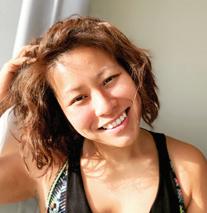
Glitter – most of them are plastics (PET) with a coating of aluminum. Avoiding glitter is the best alternative. There are a handful of companies now venturing into biodegradable glitter – but it will take some time before they are available widely.

Tea bags – this may be a shocker, but many, many brands use plastic in their product, and when the bag is steeped into the water, up to 11 billion (yes that many) microplastics can be released into your cup of tea. The best course of action is to nd a brand that has eliminated plastic in its bags – PG Tips is a good example – or to simply use a reusable lter and ll it up with loose tea leaves.
Washing machines are proven to release more microplastics from clothes – a process known as ‘shedding’, which is exacerbated when the loads aren’t full.
Tumble drying is proven to be very aggressive on materials and it also releases a lot of microplastics. Air-dry whenever possible.
Please note that the microplastic shedding levels can very much depend on the material: how tightly woven they are, friction exposure etc.
Synthetic clothes – the clothes we stand in shed microplastics because that’s what most of them are made of. An estimated 35 percent of ocean microplastic pollution is derived from textiles: from polyester and nylon to our spandex cycling shorts. Approximately two-thirds of all textile items are now synthetic, dominated by petroleum-based organic polymers such as polyester, polyamide and acrylic. The best alternative is to choose natural bres such as cotton or hemp. But that’s still going to leave you with half a wardrobe
of synthetic clothes! Follow our tips and tricks in the factbox above, so we can minimise their impact on the environment.
It starts with small steps!
WE ARE in a world where microplastics are everywhere and are unfortunately unavoidable. But let us take some small steps to minimise our impact. Check out @greenbyhabit on Instagram for short videos and fun reels discussing these topics in detail.
BIO: Jens Ulrik Høgh, 51, is a full-time Dan ish freelance writer who has been living in Sweden for the last 18 years. He is a family father with vast travel experience and a keen interest in our world. Over the years, he has participated in the ongoing public debate in most Danish mainstream newspapers.
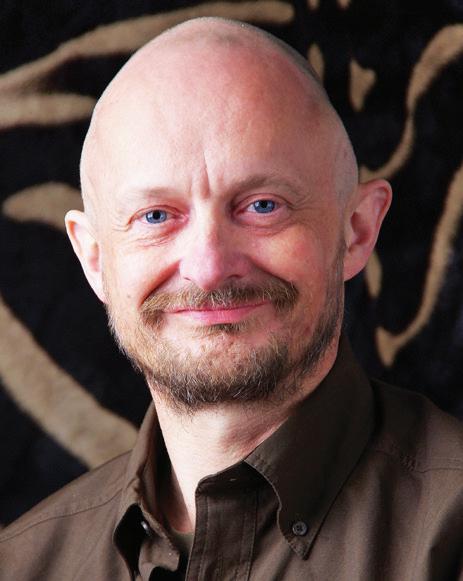
WHEN THOUSANDS of Putin's Russian tanks violated the Ukrainian border in February, few imagined Ukraine would still be an independent nation this autumn. I certainly didn't. I honestly thought that my sin cere support of Ukraine would be futile when

their ill-equipped troops had to face the second largest army in the world.
I GREW up in Denmark in the 1970s learning that the Danish military would be able to hold back an attacking Soviet army for a matter of hours. At best. I was therefore surprised to see the Russian army struggling – and quickly failing – to take Kyiv.
Since then, the brutal war that Russia chose to start in Ukraine seems to be a neverending Russian attempt to break all historical records of military incompetence. From dozens of Russian commanders failing to stay alive for longer than mosquitoes to massive missile cruisers, military airbases and strategic bridges wiped out in spec tacular "smoking incidents".

Thousands of wrecked Russian tanks litter the Ukrainian landscape, and tens of thousands of Russian soldiers will never return to their fam ilies. And yet the Putin regime keeps pouring ill-prepared troops willingly into the meat grinder.
THE RUSSIAN assault on Ukraine was a brutal rape attempt on a national level from the be ginning. However, nobody expected the victim to fight back with such determination, efficiency and courage.
I was wrong when I initially predicted a swift Ukrainian defeat. As the situation looks now, I am convinced that Ukraine has a good chance of throwing the invaders out of their country if this war continues to be fought by conventional
means.
All Ukraine needs is our unwavering support – and lots of it - because the least catastrophic outcome of this war is the complete annihilation of all Russian forces on Ukrainian soil. Nobody invited Russia to invade, murder, bomb, burn and rape the people of Ukraine.
Let us all keep reminding the Russian re gime of that fact and ensure that Ukraine never runs out of ammo. Russia is losing this war in a spectacular manner. They are welcome to cut their losses, leave the scene and pay the bill any time.
We must hold firm AND WHAT if Putin eventually pushes the big red button in desperation? Then we're probably all gone anyway. Just as the free world will be reduced to a distant memory if we yield to the demands of the rapist. This is no time for fear nor reluctance.
The only thing left to negotiate is the amount of damage that Russia must pay for its histor ical temper tantrum. There is no solution to this crisis other than teaching the beast some manners.

RUSSIAN President Vladimir Putin has often demonstrated the clarity of his goals during the War in Ukraine. As has happened with every instance of celebration in Ukraine, moments of peace don’t last very long and on October 10 that became more than evident.
After what felt like a personal victory for every Ukrainian with the bridge connecting Crimea to Russia suffering severe damage, the hopes of a turning point were shattered as major cities and infrastructure became a target of mass destruc tion when 83 missiles were fired at them by the Russian Federation.
ON SATURDAY morning, a massive explosion set the Kerch Bridge in Crimea ablaze, strik ing the key supply route for Kremlin's forces in Ukraine’s south, striking a massive blow to what was of great symbolic importance for the Russian leader. The bridge had represent ed the permanent occupation of Crimea and
Luka is an 18-year old Ukrainian student living in Copenhagen who studies at the Copenha gen International School in pursuit of a degree in neuroscience. Over the last 18 years, he’s lived in four different countries: the United States, Russia, Ukraine and Denmark. In 2017 his family moved from Kyiv to Copenhagen due to his father’s employment at the World Health Organization. Luka has a younger brother and an older sister, who studies history and politics at the University of Edinburgh. In his free time, he enjoys spending time with his family and engaging in an in-depth analysis of scientific journals regarding the nervous system as well as a variety of sports. With a rich knowledge of Ukrainian history, Luka has been able to analyse the current events in Ukraine from a wider perspective.
the possibility of a future reunion, which Pu tin decided to make an official attempt at on February 24 this year.
It was an ideal demonstration of the ways in which Russia wanted to “develop” the new ly annexed territory and brand it as its own. While the UN General Assembly condemned the bridge’s construction in 2015, it served a very clear purpose of militarisation, rather than “unity”.
But Kyiv sought to destroy the narrative that the two were “united”, with the Ukrainian defence ministry claiming it had anticipated Monday’s attacks as they “were planned by the Russians since the beginning of October''. Such strikes directly targeted children’s playgrounds, civilian parks and valuable infrastructure all over Ukraine – specifically in Kyiv.
WITH OVER 100 wounded people, and 11 report edly dead in the morning rush hour, 14 regions in Ukraine experienced the treachery of Russian missiles falling from the sky. While Russia to no one's surprise claimed it had targeted military and energy facilities, many of the missiles struck civilian areas. A massive strike targeted a play ground in downtown Kyiv and another Taras Shevchenko National University.
With thousands left without electricity and water heading into Monday night, Andriy Ye rmak, a senior advisor to President Volodymyr Zelenski, said the strikes had no “military sense” and that is was simply to terrorise the Ukrainian public even more.
However, in what is becoming a trademark of Putin, the weapons were supposedly meant to target military facilities as they were “percision
weapons” and payback for what he branded as terrorist actions in referance to the partial de struction of the Crimean bridge.
YET, WHILE the Kremlin's war in Ukraine is ap proaching the eight-month mark, Russian forces have sustained humiliating battlefield setbacks in eastern Ukraine, and despite the great atrocities of Monday morning, the Ukrainian people’s hope for victory hasn’t waivered.
Following the bombings, people sheltering on the stairs of the Kyiv subway station sang a Ukrainin folk song, ‘In a Cherry Garden’, pro claiming the words: “My dear mother, you are old and I’m happy and young. I want to live, to love.”
Some 230 days and counting, the war con tinues.
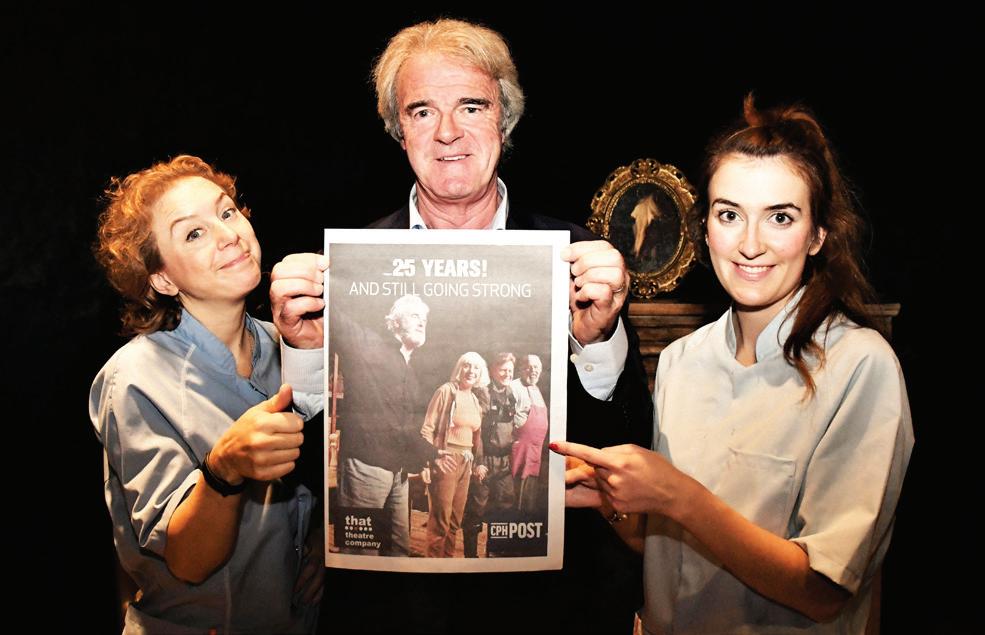

















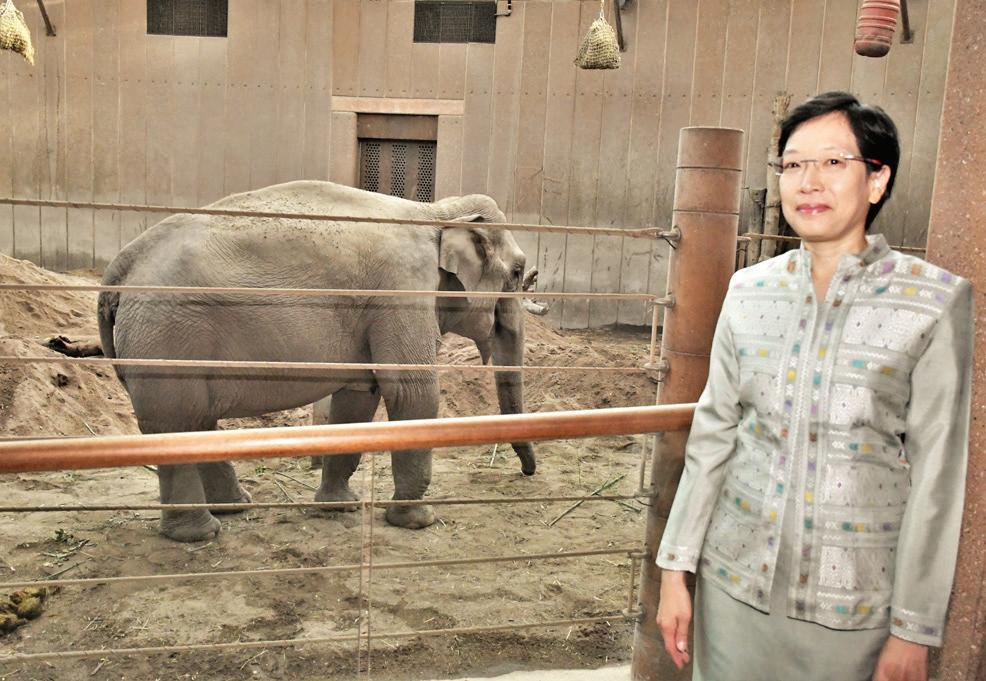
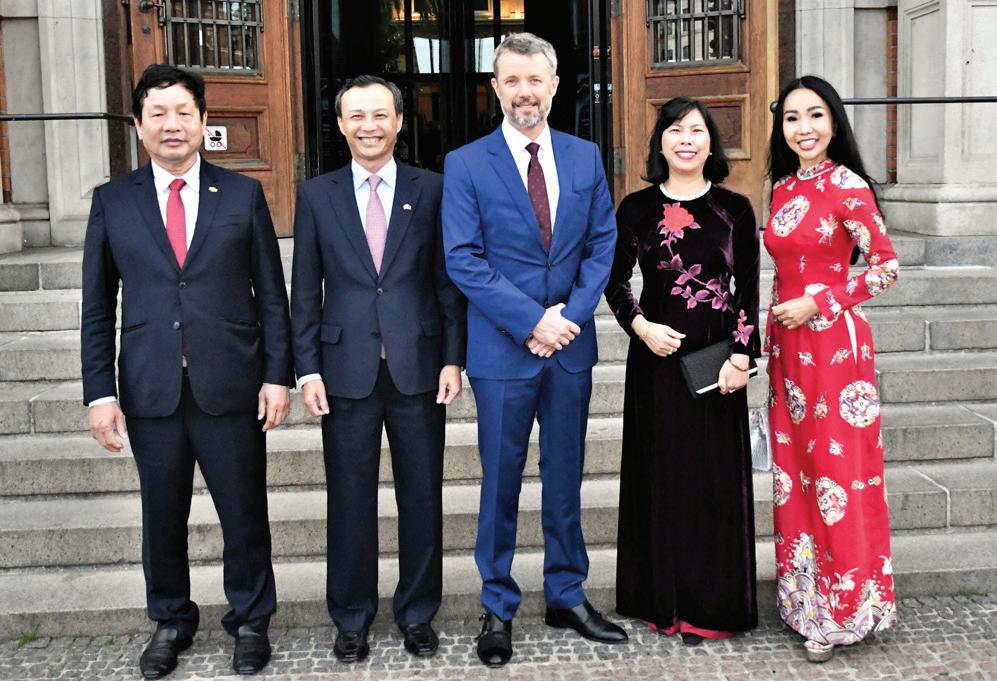

The red carpet is in place at 5:30 pm and the crowd is pouring in, while the entertainment is already starting outside above the entrance.
Three singers dressed in black and white tuxedos welcome the audience. Broadway music-style songs crooned using retro microphones, and they also sing a jazz/ blues version of the Nirvana classic ‘Smells Like Teen Spirit’ and various other ear candy through the decades.
Already here we get the sense that the evening will be a celebration of life and joy and it will be glamorous, grand and festive.
The theme for the 2022/2023 Wallmans Dinnerparty season is VIVA – a massive celebration of life at its most exuberant and social, especially after three years of COVID-19 closures. For a moment in the spirit of entertainment, we can forget our worries about electricity bills or wars.
A four-course dinner prepared by Wallmans’ long-time chef will be served during the show. There are six different menus to choose from, including meat, seafood, vegan and vegetarian options.
The tuneful waiting staff direct seating and cater to one's every whim and desire. The atmosphere in the candlelight is intimate.
The small lamps on the tables makes it feel like it’s a bygone era when there were also
telephones on the tables. It's certainly an occasion to get out your finest clothes – it raises the mood to be dressed to party all night.
And so the show starts off with Drag Queen Miss Megan Moore as the hostess for the evening. It's a show of high international quality with singing, dancing and artistry, and wherever you sit, you'll see it all.
Time flies in joyous hours with world-class acrobatics performed by circus performers


Beate Surmiak and Jamie Swan – right over the tables next to you, both breakneck and elegant. Evergreens are sung that most of us love and almost know by heart in both the soul genre and evocative of the roaring 20s. Elvis, ABBA and Frank Sinatra classics figure too.
Dishes are served between stage changes so you can digest the impressions washed down with high-quality wines. At no point are you left to your own devices as an audience member: if you’re not singing along to ABBA songs, you’re voting for your favourite ABBA song and hopefully winning champagne. There’s not a dull second from the moment you arrive until the show ends some five hours later.
Wallmans is originally Swedish and part of the Wallmans Group, which for almost 50
years has been both an idea developer and an initiator in the Swedish entertainment industry.
This year, the finale is dedicated to one of Sweden's great songwriters and producers, Max Martin. He wrote the Britney Spears record ‘Baby One More Time’ along with hits for Bon Jovi, Backstreet Boys, Katy Perry and Céline Dion, to name just a few. He has more than 25 #1 hit singles on his CV.
Max Martin's pop universe provides the finale: a fantastic show ensemble of all the singers, dancers and musicians who have entertained us all night. They gallantly kick the crowd onto the dancefloor, from when the nightclub opens and the party continues all night long.
Since Wallmans in 2003 took over Copenhagen's biggest cultural icon, the 1886-inaugurated Circus Building, there have been dinner parties with great success that have attracted audiences from both home and abroad, and this year is no exception.


This is the perfect place to hold company dinners, Christmas parties, New Year's Eve, dinner dates or family birthday parties. It’s definitely a spectacular show and party you won't want to leave. It always leaves the audience wanting more.
For further information visit wallmans.dk.
Photos: Wallmans press photos Photos: Hasse FerroldFLY ME TO the Moon’ is the 51st production put on by That Theatre Company, and this certainly seems to be a case where practice makes perfect.
The brilliant 85-minute comedy, at Krudttønden theatre for most of October, is directed by Ian Burns, the founder of That Theatre Company, and written by Tony-nominated playwright Marie Jones.
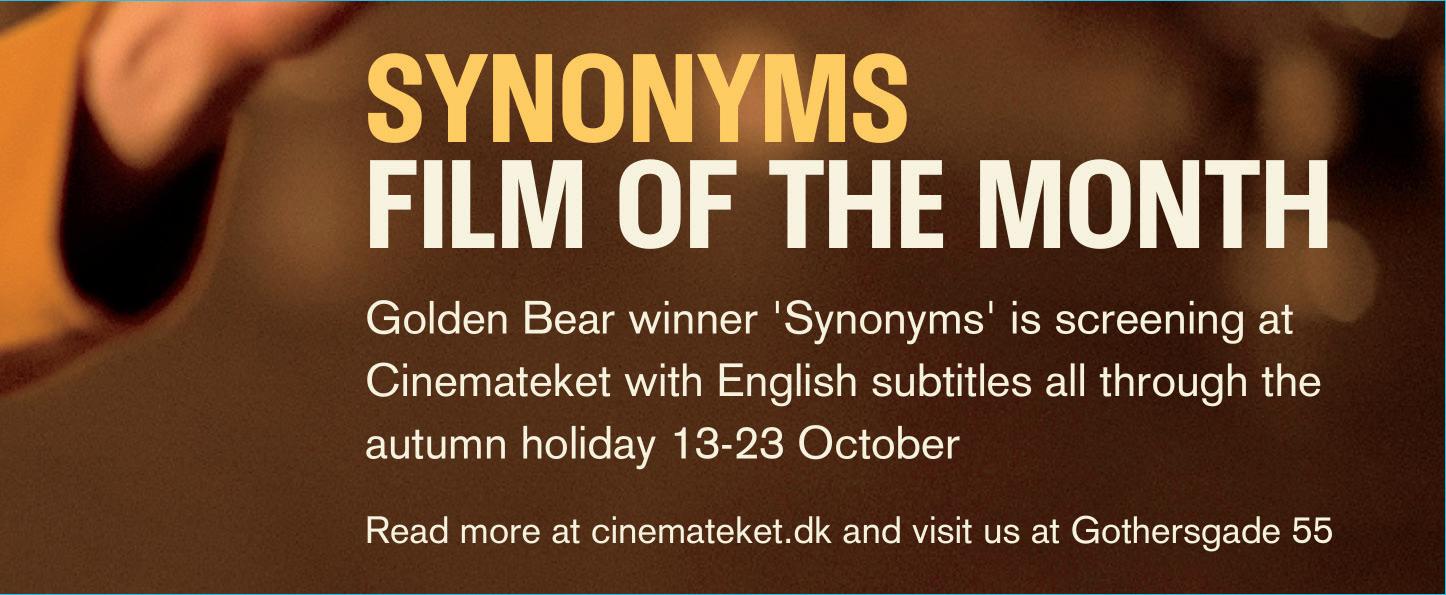
Even in previews, the show was a resounding success with no obvious kinks to be worked out.
THE PLAY is performed in its entirety by just two actors: Alexandra Jespersen and Dawn Wall. Perfectly cast and expertly staged, director Ian Burns deserves all the plaudits that will surely be coming his way.
Wall and Jespersen had fantastic chemistry right from the start. I would have been content to just watch them gab and gossip in their totally believable northern English accents for the length of the play. Of course, they had so much more to o er.
Through a mix of long dramatic, or more often comedic, pauses and rapid- re dialogue, with no line stepped on and no joke thrown away, Wall and Jespersen masterfully built tension and demanded the audience's attention, winning many laughs along the way.
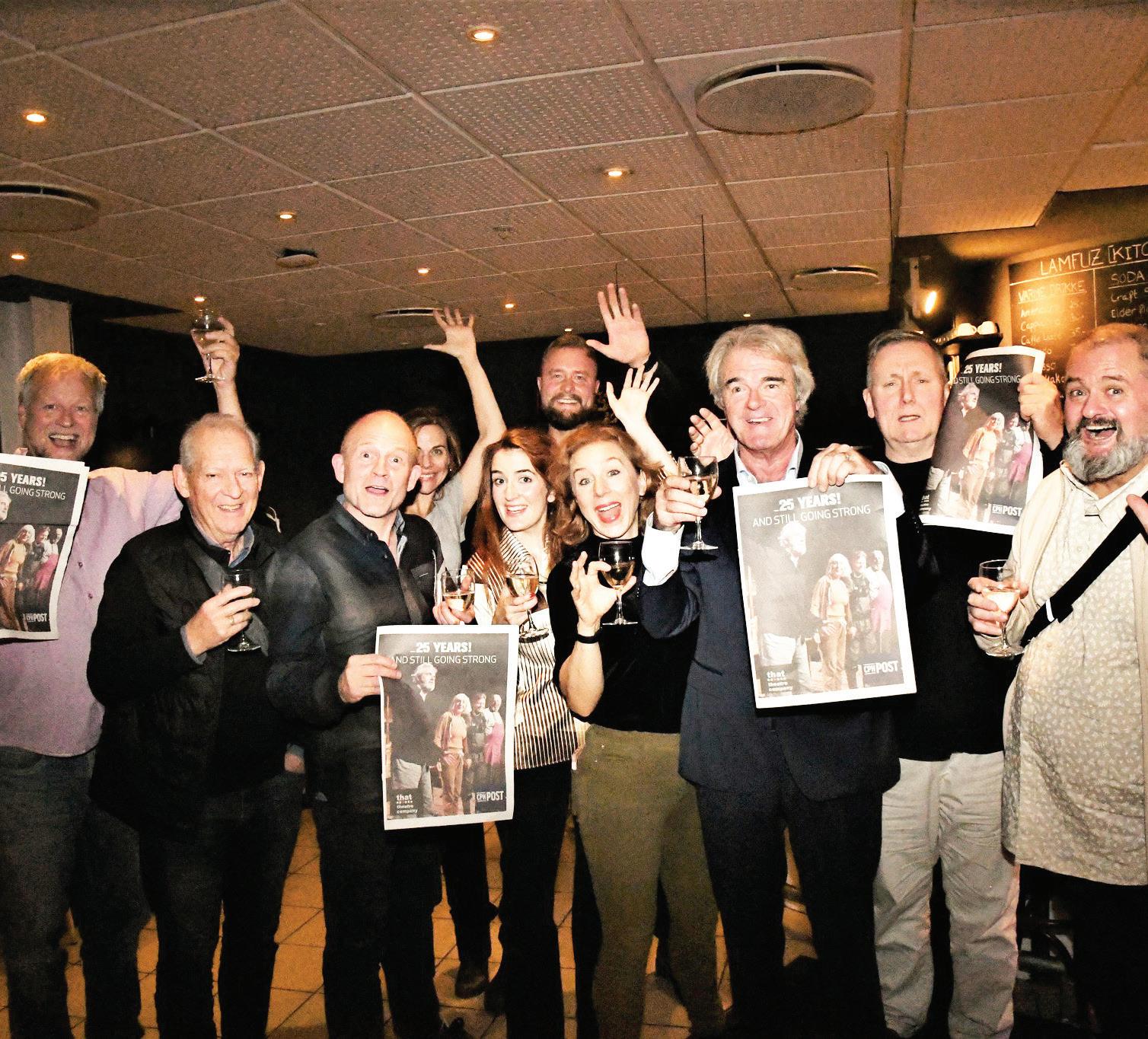
JESPERSEN for her part put on a physical comedy clinic. With careful attention to posture and facial expressions, not to mention a couple of absurd gags worthy of Peter Sellers, she consist-
ently had the audience doubled over before she even opened her mouth. Then she’d open her mouth and the oodgates with it.
Dawn Wall, no less amusing, played a more understated and right-minded character: the perfect comedic foil to Jespersen’s absurd and sometimes machiavellian character. They were the perfect partners in crime.
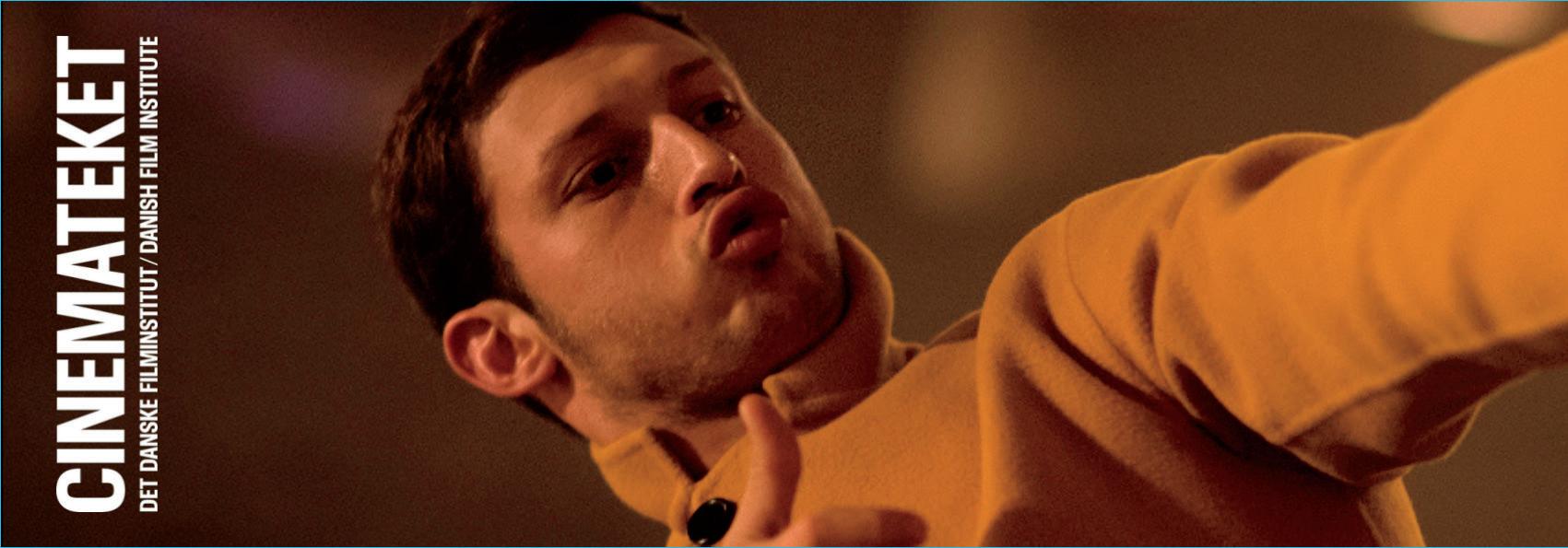
Wall’s emotional versatility and the entertaining way she wrestled through
some profound internal con ict won me over at the start and kept me onboard throughout, no matter how morally grey the play became.
Upping the ante all night long
THE PLAY'S greatest strength was its ability to constantly outdo itself by constantly raising the stakes of the drama and escalating the joke. Do you think that line was funny? You best hold onto your seat for the next one. Do you think
this situation is bad? Someone is about to throw a match on it.
‘Fly Me to the Moon’ is a play about class. It's a play about death. It's a play about great temptation and Frank Sinatra. It's a play about many things, but most of all, and as unlikely as that description may make it seem, it's a play that will get you laughing and keep you laughing.
When the play nished it got a rousing ovation from all in attendance with
the audience demanding four bows from stars Dawn Wall and Alexandra Jespersen. By the nal bow, the whole crowd was on its feet and Wall and Jespersen seemed, for the rst time all night, a bit uncomfortable up on stage. But, let me assure you, it was no less than they deserved.
The show has something in it for everyone and certainly merits its 205 kroner admission.
ends Oct 20, performances Mon-Fri 21:30, Tue 13:00, Sat 17:00; Krudttønden, Serridslevvej 2, Cph Ø; 205kr
The English language premiere of Marie Jones' play 'Fly me to the Moon’, a comedy play depicting the lives of two nurses presented with an oppor tunity to get ahead financially, which ultimately spirals out of control. Starring Dawn Wall and Alexandra Jespersen, the play is directed by That Theatre Company's artistic director Ian Burns (BV)
As Long as The Sun Lasts
ends Oct 23; Louisiana, Gammel Strandvej 13, Humlebæk; 125kr
Perched on a crescent moon with a ladder is a blue version of Big Bird, the character from the US children's TV show ‘Sesame Street’. Inspired by the mass-produced toy kits that can be reassembled in different ways without the need for tools, Alex Da Corte created the six-metre sculpture piece in New York in 2021. (SS)
Oct 16 & 30 at 12:00, Oct 22 & 29 at 13:00; Ekvipagemestervej 10, Cph K; 135kr, under-12s 60kr, kglteater.dk
Discover the Opera's beautiful foyer with its clean lines, Olafur Eliasson's light sculptures, and views over Copenhagen Harbour that embrace the shiny maple shell around the Main Stage. There is also a tour of Gamle Scene on October 23 at 11:00.
ongoing, ends Feb 19; Sølvgade 48-50, Cph K; 120kr
The year 2022 marks exactly 30 years since Den mark received 20,000 refugees from the former Yugoslavia. Many of these refugees chose to stay in Denmark and became artists, and seven of them present personal artwork inspired by the Yugoslav Wars, migration and asylum policies.
Nov 6 & 20; Kogebogeriet, Guldbergsgade 10, Cph N
If you’re looking for an authentic British afternoon tea, then Kogebogeriet is the place to go. Enjoy a menu that includes roast beef with Yorkshire pudding, freshly-baked scones and clotted cream, along with unlimited tea.
Oct 25; Søndre Fasanvej 24, Frederiksberg; entry 30kr
Maximum of four per team, it’s 1,000 kroner for the winners and a crate of beer for second. Two beer rounds, and shots for last place!
Mom, I don’t want war
ongoing until Nov; in front of St Ansgar's Cathe dral, Bredgade 64, Cph K
‘Mom, I don't want war’ is an art exhibition pre senting the incredibly moving testimonies of children during the war. Drawings of Polish chil dren, mostly during the German occupation of Poland between 1939 and 1945, are combined with contemporary drawings of Ukrainian children during the current war. (SS)
ongoing until Nov 3; Opera House, Ekvipagemes tervej 10, Cph K; 160-770kr, kglteater.dk

Come to the Opera House and be captivated and entertained by the life of the adventurous Danish storyteller Karen Blixen. Blixen is a three-act ballet choreographed by Royal Danish Ballet principal dancer Gregory Dean. (SS)
ends Oct 26; Opera House, Ekvipagemestervej 10, Cph K; 160-770kr, kglteater.dk
Enjoy a fairy-tale opera sung in Italian based on the story of Cinderella, which despite its more than 200 years of longevity remains as fresh and captivating as its origins. (SS)
Sat-Sun 10:00-16:00, through Oct; Ved Amager banen 9, Cph SV
The Blue Hall is an indoor flea market that includes a cute café. It is lined with stalls featuring furniture, jewellery, ceramics and art. It is a great way to spend some time wandering around looking for home decorations.
Oct 20 & Nov 3, 19:15; Globe, Nørregade 43, Cph K; 50kr, five per team
The winners get 1,200 kroner. And who knows, the odd rollover has been known to go too. Backto-back quizzes following the cancellation of the September 22 edition.
ends Jan 16; Nikolaj Kunsthal, Nikolaj Plads 10, Cph K; 40kr
Curator Christian Nørgaard had exclusive access to David Lynch’s photo archives to make this exhibition. It’s tailor-made to fit in with the gothic style of Nikolaj Kunsthals Øvre Galleri og Tårn. The church tower dates back to the 16th century. (SS)
CPH Architecture Festival
ends Nov 18; across the city, dfi.dk
Despite the festival officially ending on October 16, there are four more events stretching into November.
Science Cocktails: Future Ocean
Oct 26; Koncertsalen, DR Koncerthuset, Ørestads Boulevard 13, Cph S; 145-195kr, drkoncerthuset.dk
Recently featured in the Netflix documentary ‘Seaspiracy’, Callum Roberts is one of the world’s best known oceanographers. His lecture on the future of our oceans, coral reefs and marine life is vital viewing in these worrying times. Before the talk, Hess is More will perform a concert based on recordings by 99-year-old singer Ibojas Wan dall-Holm, and then DJ Copyflex will conclude the evening with another awesome set. (SS)
Oct 17; 20:00; Scandic Spectrum, Kalvebod Brygge 10, Cph K; 80kr
Enjoy some amazing improv talent and then meet the team after the show.
ends Feb 19; Kunsthalle Charlottenborg, Kongens Nytorv 1, Cph K; 90kr; kunsthalcharlottenborg.dk Honey Biba Beckerlee examines connections between spheres of geology, technology and biology using wire coils, microchip scrap, cables and server racks to create sculptures that resemble ceramic mosaics. (SS)
Ka-Ching! - Show me the money ongoing; National Museum, Ny Vestergade 10, Cph K
Learn about the history of money and gain some insights into the world of finance. And take a money bath!
ongoing, 16:00; Ofelia Plads, Cph K
Five large sculptures by Danish artist Lin Utzon, each 3.5 metres in length, have been unveiled at Ofelia Plads. The statues will be illuminated each night until the end of March.
Anne Marie Carl-Nielsen
ends Feb 22; Glyptoteket, Dantes Plads 7, Cph K Admire the work of one of Denmark’s most impor tant woman sculptors. It’s the largest exhibition of her work since 1946.
SMK evenings ongoing, every Wed; Statens Museum for Kunst, Sølvgade 48-50, Cph K
On Wednesdays SMK stays open until 20:00 before which you can receive a guided tour and enjoy various art experiences. (BV)
Oct 20, 17:30-21:30; Nikolaj Kunsthal, Nikolaj Plads 10, Cph K; 595kr
Enjoy a guided tour of the Nikolai Art Gallery followed by a three-course dinner at the Maven Restaurant. (SS)
Inside the Butterfly House ends Oct 23, Palm House at Botanical Garden, Gothersgade 128, Cph K; 60kr, snm.ku.dk Surrounded by around 10,000 species of plants, enjoy the life and transformation of butterflies in a fairytale setting. (SS) North Pole to South Pole ends Oct 23; Zoological Museum, Universitet sparken 15, Cph Ø; 105kr, snm.ku.dk
Come face-to-face with life-size wild animals from the Earth's various climatic zones. Includes Arctic walruses, Himalayan snow leopards, rainforest rhinos and Saharan wildlife. (SS)
ends Oct 23; Zoological Museum, Universitet sparken 15, Cph Ø; 105kr, snm.ku.dk
Discover the new huge Danish dinosaur ‘Misty’ accompanied by a number of the museum's valuable treasures, and if you like big fossils, don’t miss the exhibition ‘From mammoth steppe to cultural steppe’. (SS)
Oct 15, 20:00; Royal Arena, Hannemanns Allé 20, Cph S; tickets from 90 euros, eventworld.co
US rapper Kendrick Lamar arrives in Copen hagen to present his new album ‘Mr Morale & The Big Steppers’. It is one of the most critically acclaimed and best-selling musical works of the year. (SS)
Oct 21; Royal Arena, Hannemanns Allé 20, Cph S; tickets from 60 euros, eventworld.co
The British rock musician is bringing his multiple hits to Copenhagen this autumn. (SS)
Oct 19; Vega, Enghavevej 40, Cph V; tickets from 90 euros, eventworld.co
Swedish indie pop and electronic singer and songwriter.Lykke Li lands in the Danish capital to present her latest album ‘EYEYE’ and hypnotise the audience. (SS)
Oct 22; Stagebox, Refshalevej 189, Cph K; tickets from 40 euros, eventworld.co
The Nigerian artist who recently collaborated with Selena Gomez will bring Afrohouse songs such as his worldwide hit ‘Dumebi’, which has more than 700 million plays on Spotify. (SS)
Oct 18; Vega, Enghavevej 40, Cph V; tickets from 100 euros, eventworld.co
US singer-songwriter Caroline Polachek has ex ploded since ‘So Hot You're Hurting My Feelings’ went viral on Tik Tok. (SS)
CPH Conker Championship
Oct 23, 13:00; Charlie’s Bar, Pilestræde 33, Cph K; free adm
The tradition of the conker game continues. Everyone is invited to try to break each other’s nuts. This year’s edition is the tenth anniversary.
Annual CPH Film Festival
Oct 21 & 22; Husets Biograf, Rådhusstræde 13, Cph K; free adm; annualcphfest.com
This year will be the 6th edition of the festival and will have 38 films competing in 11 categories. (SS)
Oct 20-30; various venues & events; mixcopen hagen.dk
Running since 1986, it is one of the world’s larg est LGBT film festivals in the world. As well as screenings at Cinemateket and Empire Bio, it includes various workshops and events, such as bondage classes. (SS)
Grønt Marked Nørrebro
Oct 16, 10:00-15:00; Guldberg Byplads, Sjællands gade 12A, Cph N; free adm
Grønt Marked introduces Copenhageners to farm ers and outstanding local food producers. Among other products, you can find honey, micro-brews and fermented goods. (SS)


You will be a valued and trusted partner to the business and top management, as you bring the element of innovation to business needs and help bring a strategic idea into realization.
Location: Hedehusene
Deadline: ASAP
Contact: Louwrens Vermaak, +45 20 99 53 90




Are you ready to have an important role in the offshore strategy working for one of the wellknown wind turbine manufacturers? Would you like the opportunity to focus on defining sales quality while using your stakeholder management skills? Are you not afraid of the complexity entailed in the offshore wind industry?
Location: Copenhagen
Deadline: 23 October 2022
Contact: Margarida Matias, Recruiter, mrgmt@vestas.com
You solve tasks with a positive can-do attitude as your main character. You will set high standards while feeling comfortable in handling numerous tasks simultaneously and effectively deliver on a wide variety of assignments.
Location: Copenhagen
Deadline: 24 october 2022
Contact: Josephine Dyhr, Finance Manager, josephine.dyhr@cadeler.com

Are you looking to enter the world of regulatory affairs? And do you want to use your scientific background in a role with a strong focus on documentation, regulations, and requirements?
Location: Hørsholm
Deadline: ASAP
Contact: Lea Dart, EMEA Talent Acquisition & Talent Manager, Lea.Dart@fmc.com
Are you passionate about delivering extraordinary learning experiences and impactful trainings? Do you hold experience in training, facilitation and learning design? And would you like to be part of the world’s largest humanitarian organization in Disaster and Crisis Response?
Location: Copenhagen
Deadline: 19 October 2022
Contact: Bjarke Skaanning, bjska@rodekors.dk
Do you have a strong passion for graphic design paired with an eye for perfect details? Do you have a can-do attitude and a structured mindset? And do you value a dynamic work environment with great colleagues in global hearing healthcare and audio technology group?
Location: Smørum
Deadline: 6 November 2022
Contact: Anne Skarbye, Senior Creative Designer, +45 24 79 39 40












You’ll play a key role in our continued growth by providing technical recommendations to our enterprise-level customers.
Location: Copenhagen
Deadline: ASAP
Contact: Adam Jakab, Solutions Team Lead adja@queue-it.com
As part of a small team, you will provide day-today services to institutional investors, sell-side analysts and corporate management and develop high-quality communications materials to support the fair valuation of the Lundbeck share.
Location: Copenhagen
Deadline: 23 October 2022
Contact: Palle Holm Olesen, VP, Head of Investor Relations, PALO@lundbeck.com
Are you an experienced and curious communicator with leadership abilities? And do you have a strong desire to play an active role in the transition to green, sustainable energy?
Location: Copenhagen
Deadline: ASAP
Contact: Christian Bergmann Mølgaard, Head of Communications, cbm@betterenergy.dk
To advertise your
and reach
For
We are looking for a driven and talented Project Manager to manage the efforts of our Strategic Event Team, and to be part of developing and executing impactful events and networks for the Novo Nordisk Foundation.
Location: Hellerup
Deadline: 6 November 2022
Contact: novo.csod.com
Students, Graduates, Spouses, Professional Job Seekers & Career Changers through an online community, workshops, events and 1:1 coaching.
Find out more at: englishjobdenmark.dk/
English Job Denmark started in 2019, in response to how challenging and unforgiving the employment market can be for foreigners. The team had firsthand experience and wanted to share their knowledge in successfully finding a job in some of the top organizations in Denmark.
Is this you? We can help
Sign up for a Danish course at Studieskolen. We focus on pronunciation so that soon you will be speaking Danish in a way that people understand. We offer free Danish Education as well as private classes. Read more about your possibilities at studieskolen.dk.
